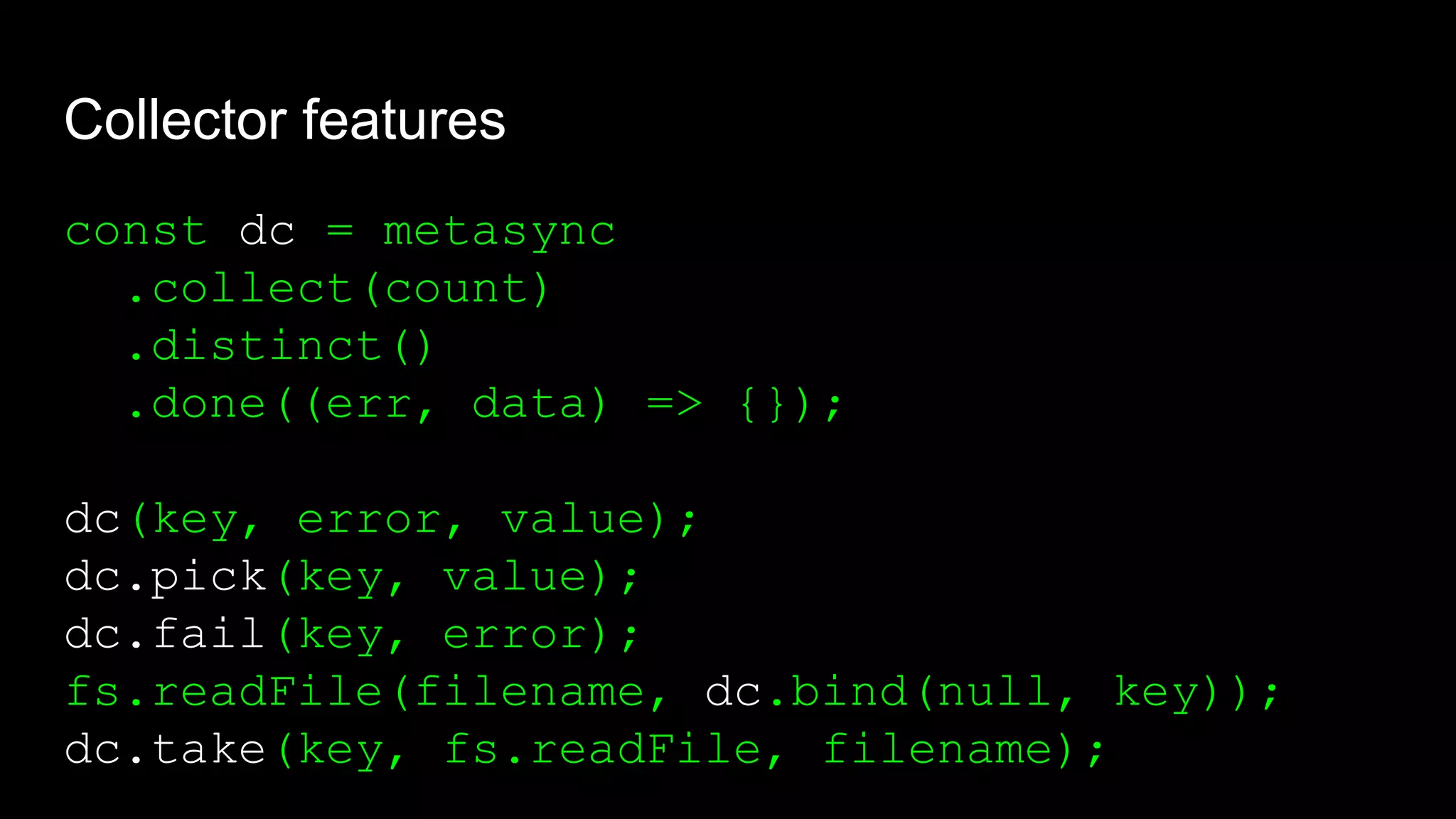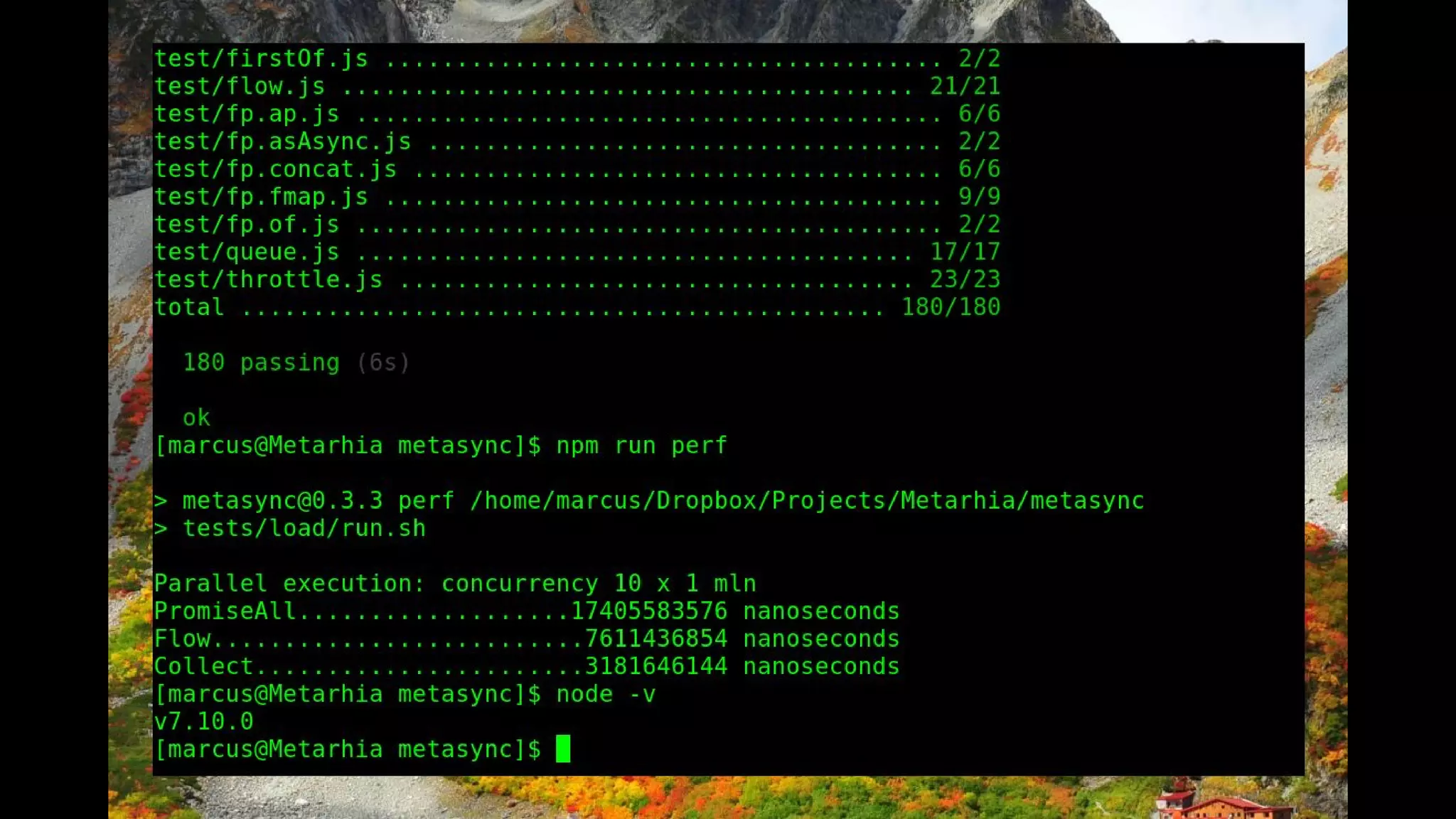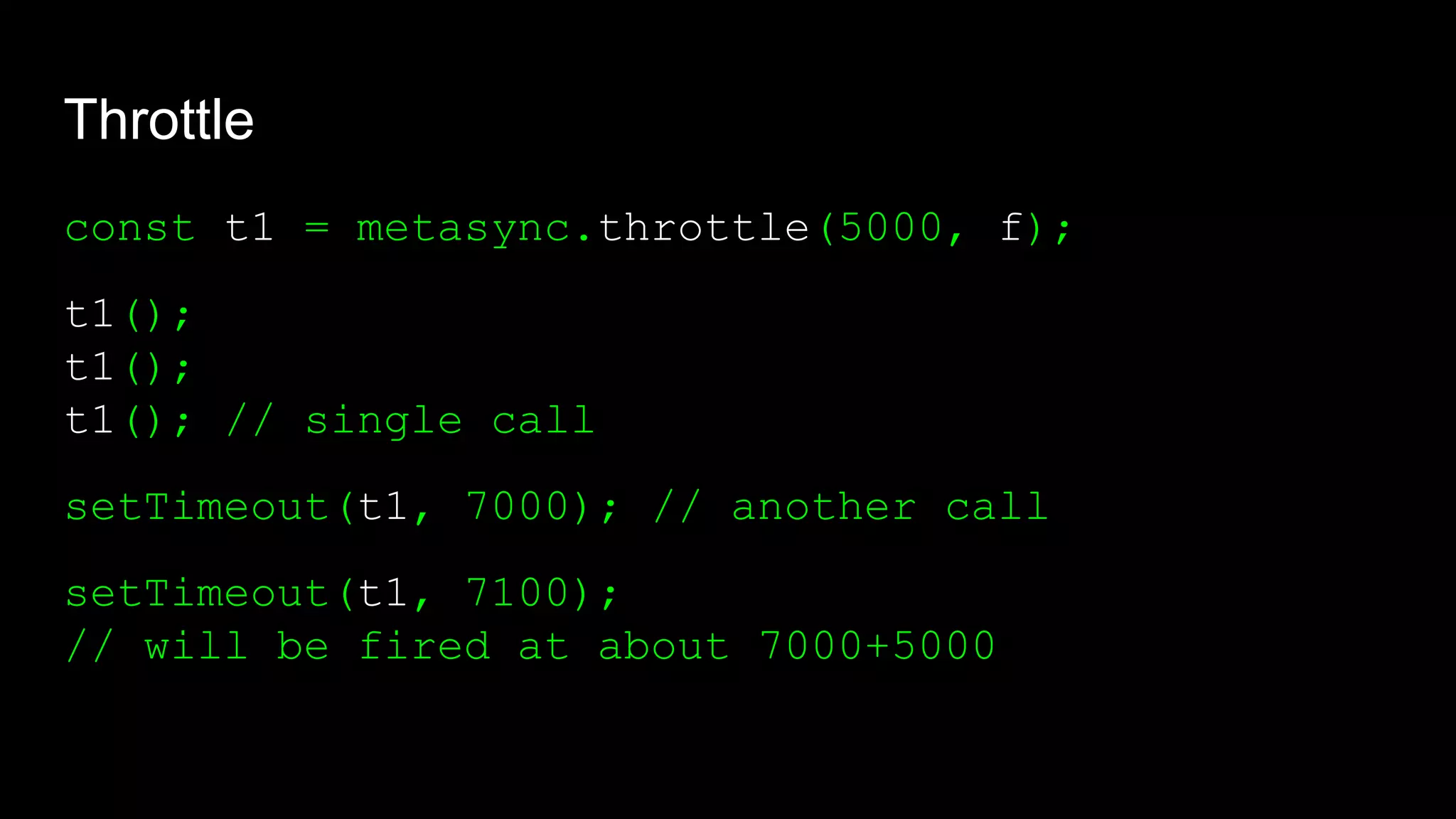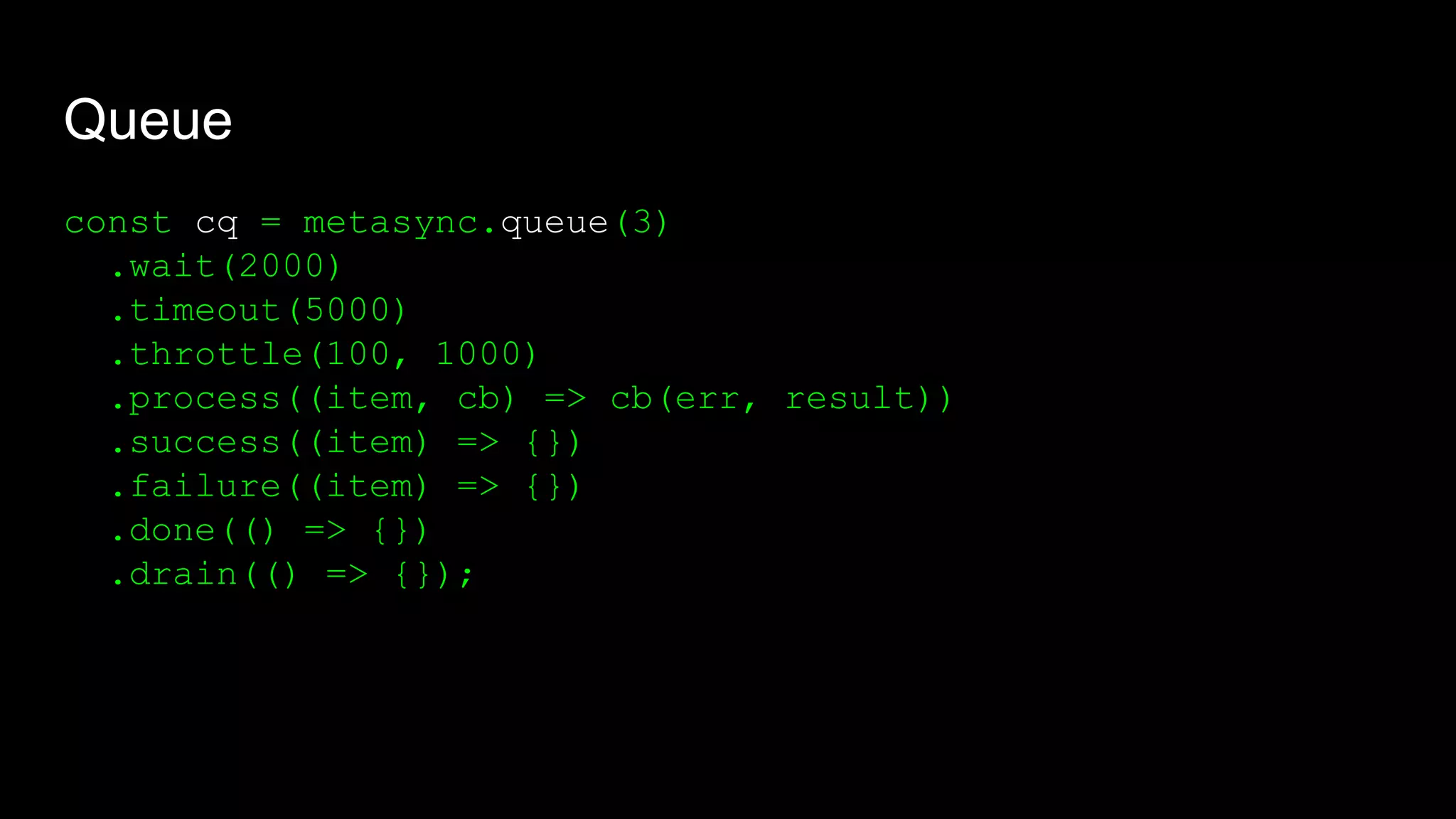The document discusses asynchronous programming techniques in JavaScript including callbacks, promises, async/await, and libraries like async.js. It covers problems with nesting and different contracts. It then introduces the Metasync library which aims to simplify asynchronous code through functional composition and abstractions like collectors, queues, and throttling. Metasync uses an error-back compatible contract and allows both sequential and parallel asynchronous flows.


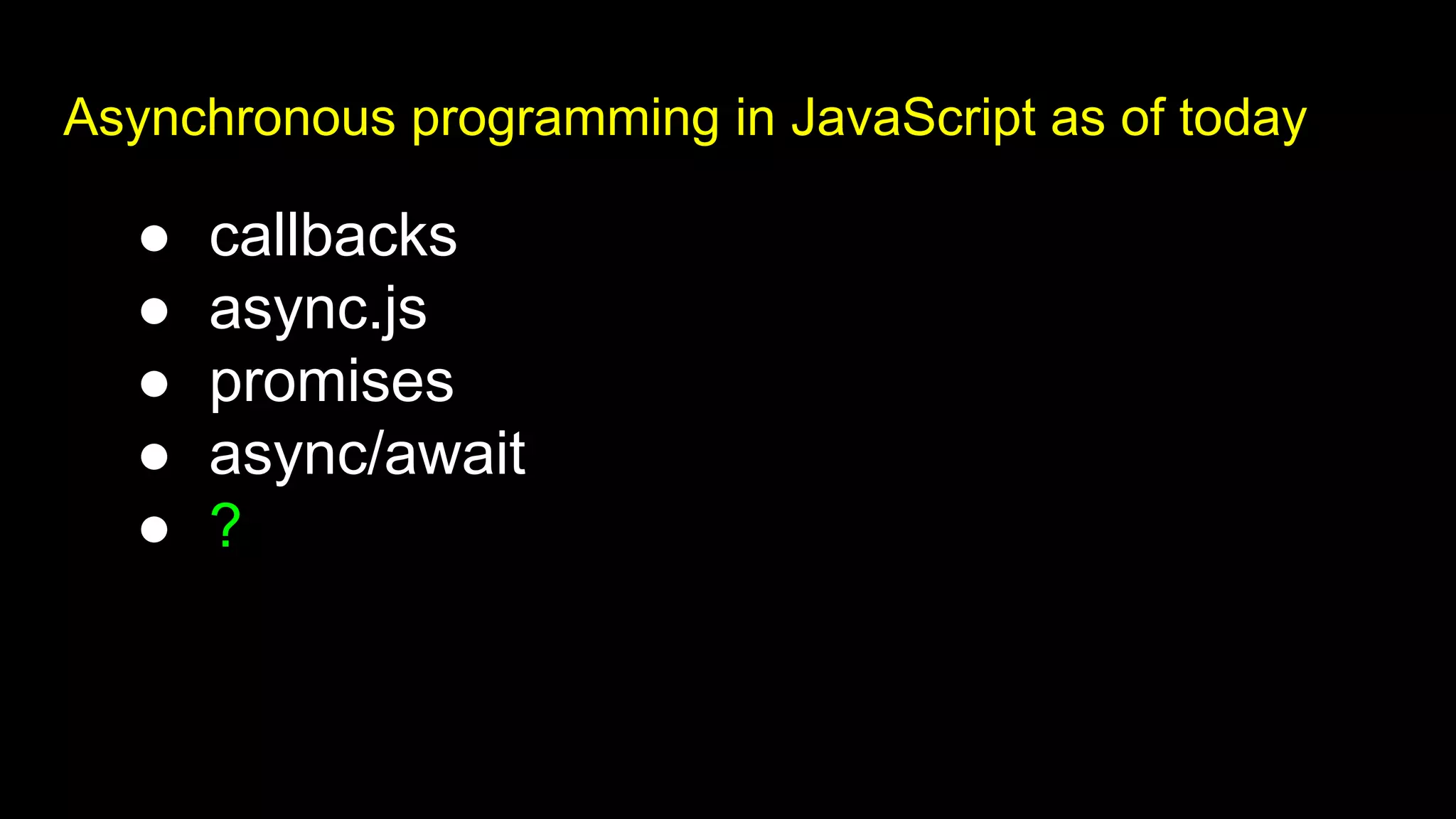
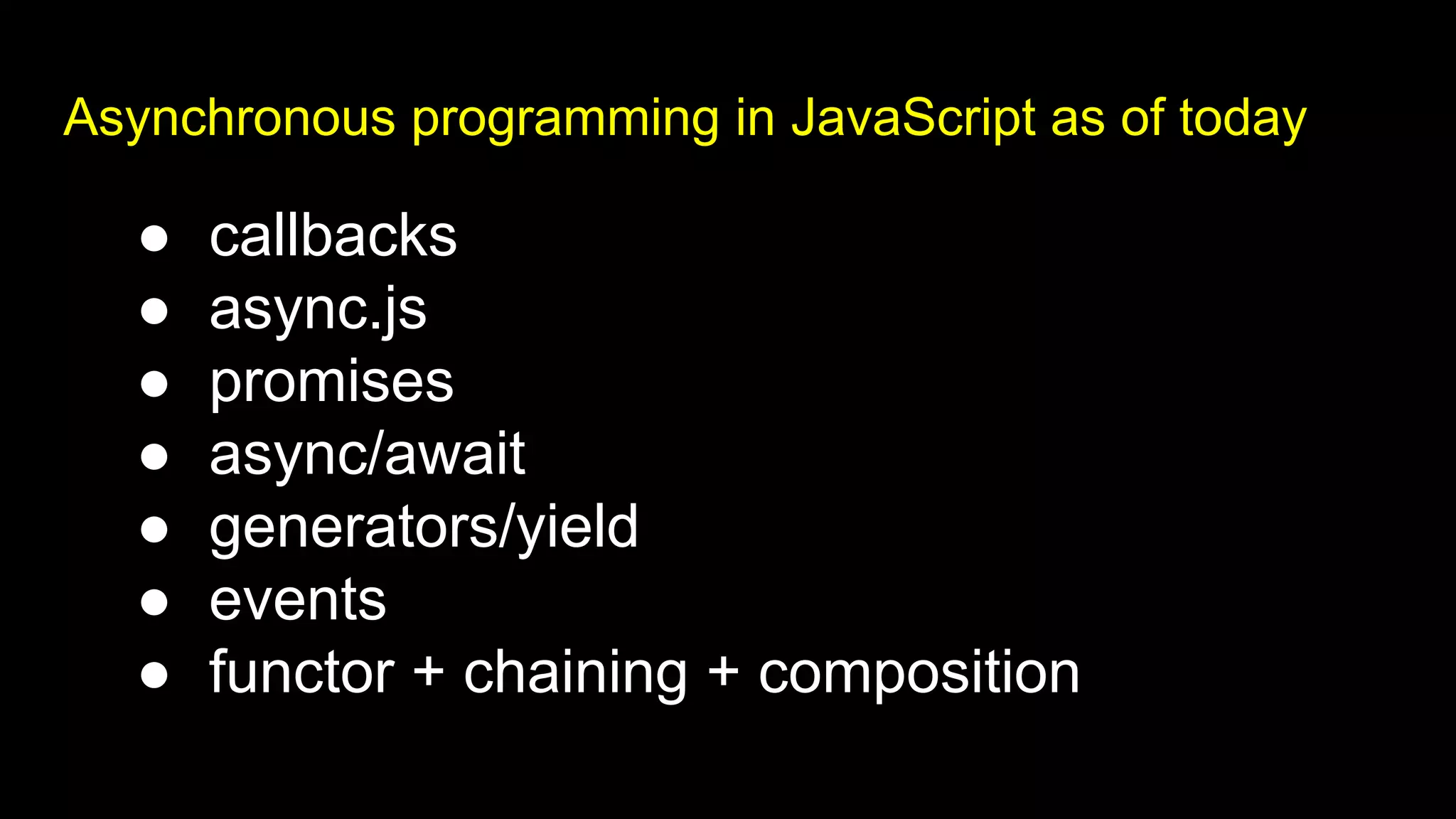
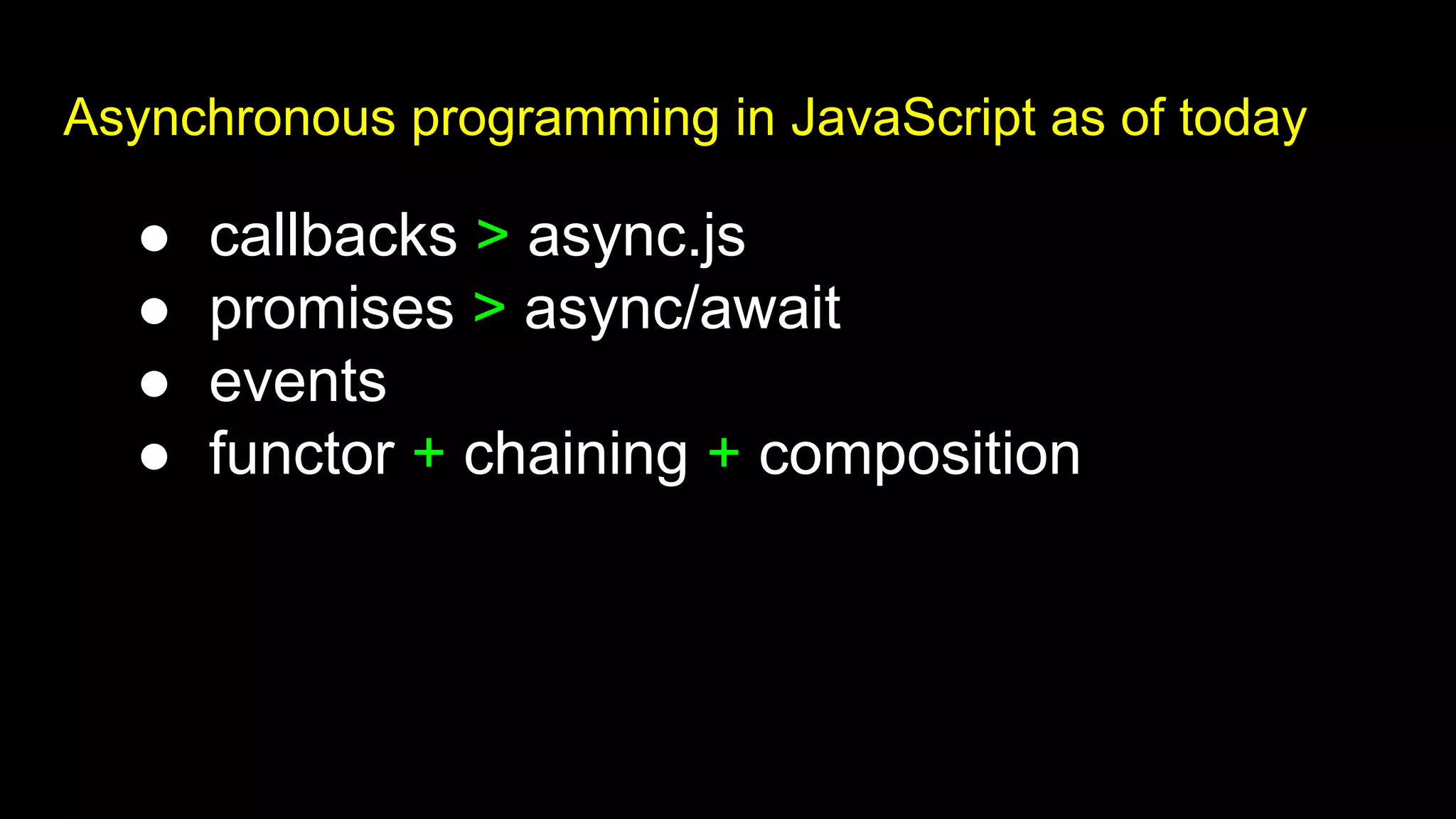
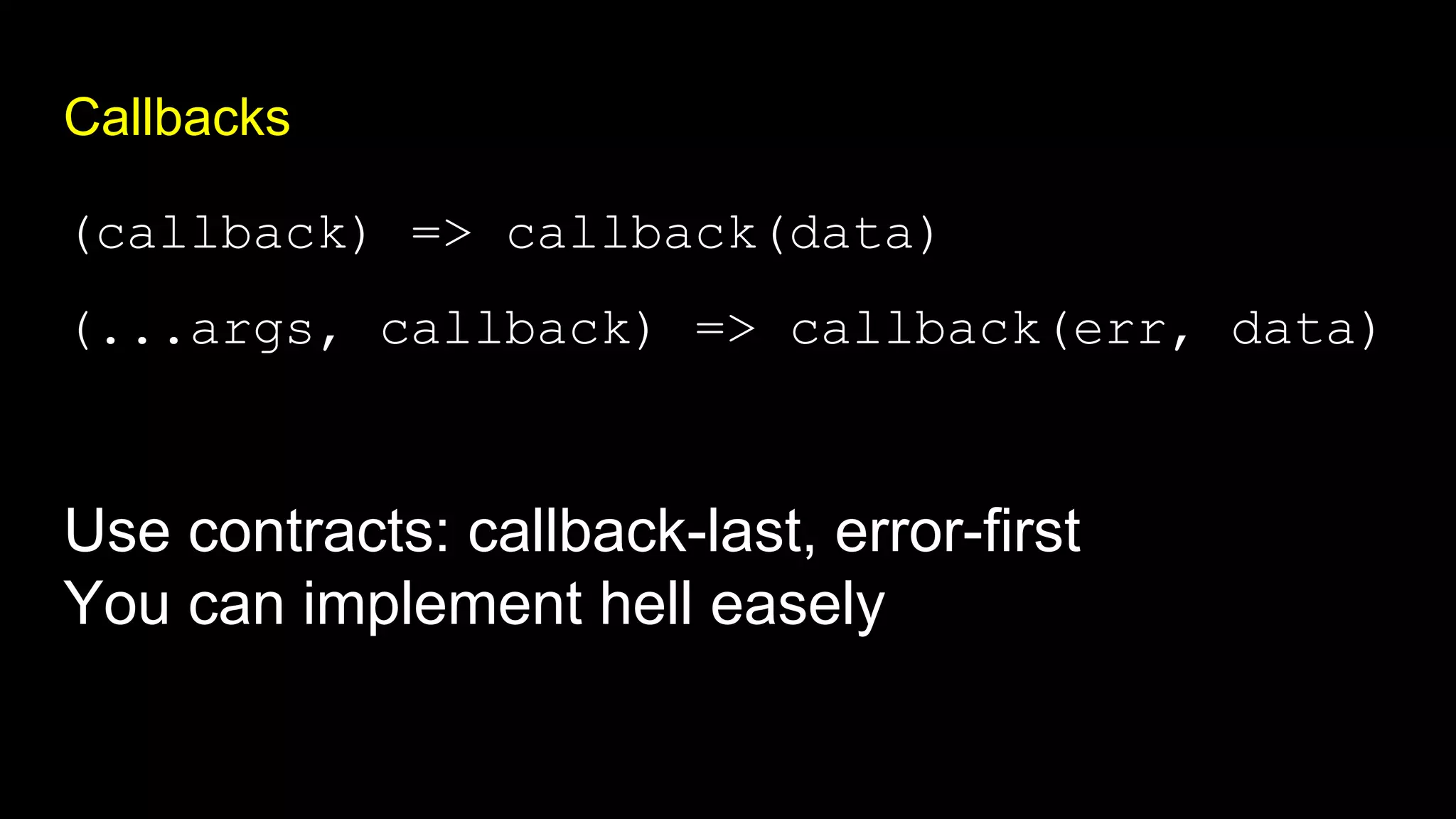
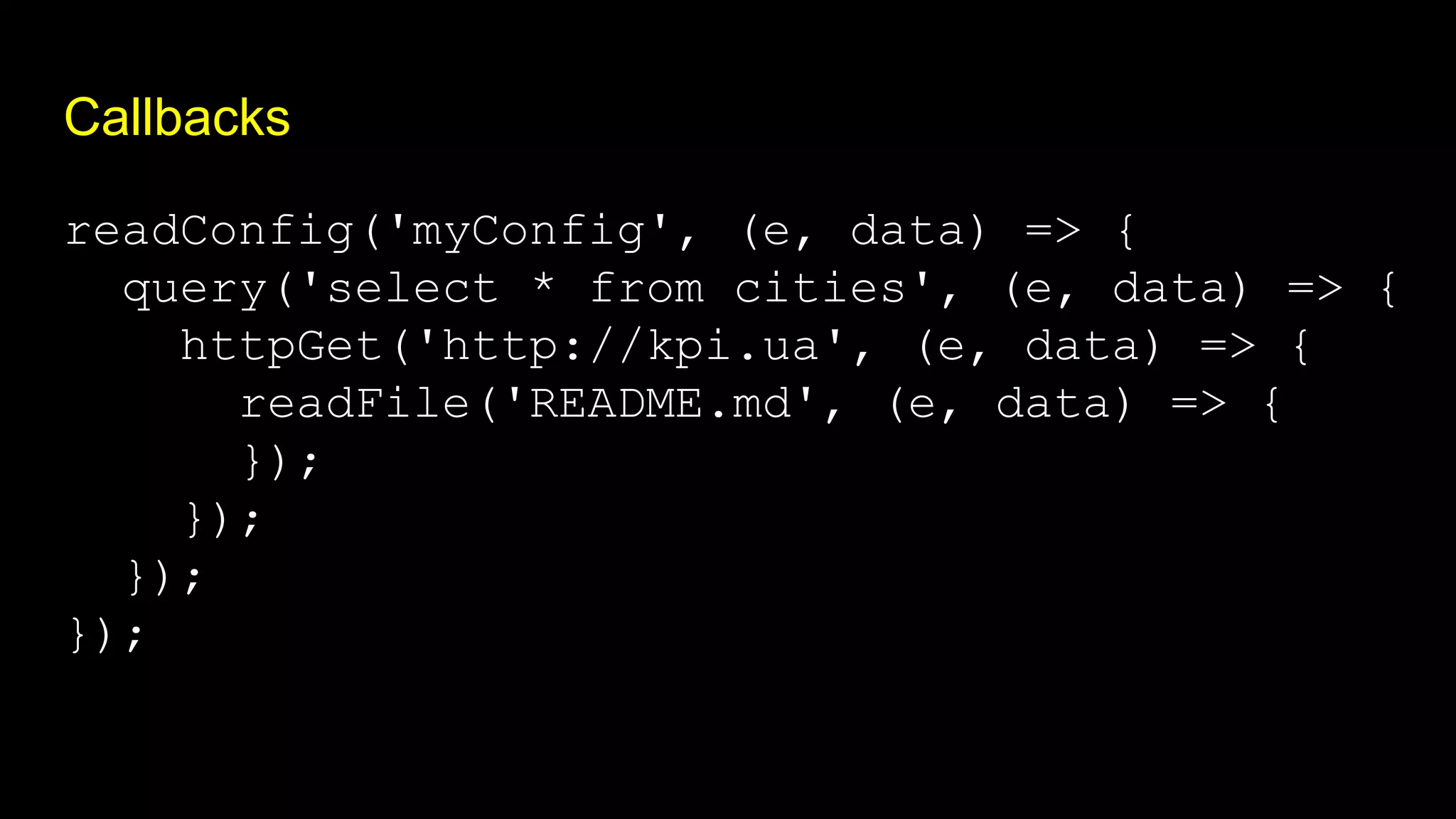
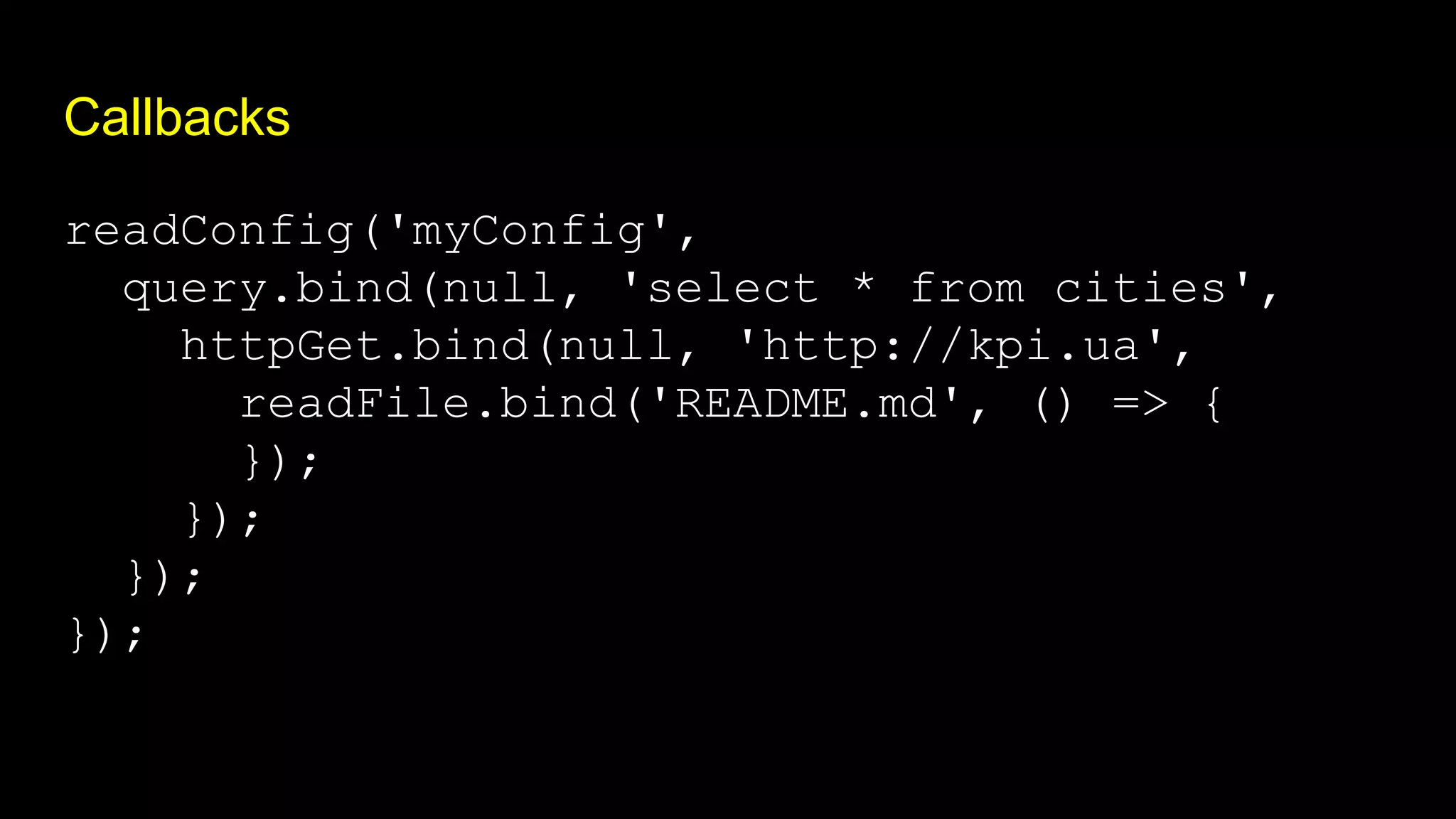
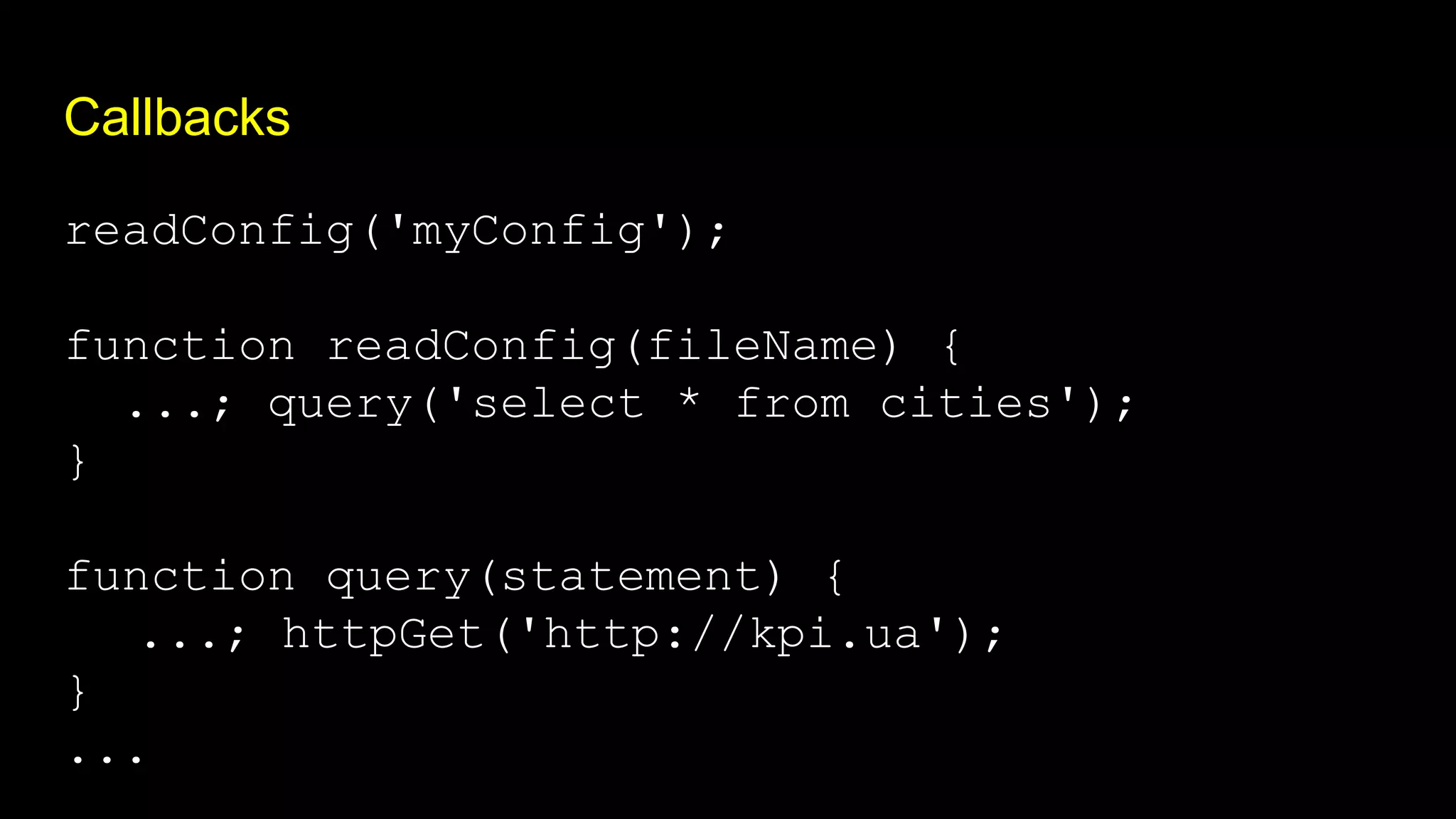
![Library async.js or analogues
async.method(
[... (data, cb) => cb(err, result) ...],
(err, result) => {}
);
Use callback-last, error-first
Define functions separately, descriptive names
Hell remains](https://image.slidesharecdn.com/asynchronousprogrammingwithjavascriptandnode-171028133655/75/Asynchronous-programming-with-java-script-and-node-js-10-2048.jpg)
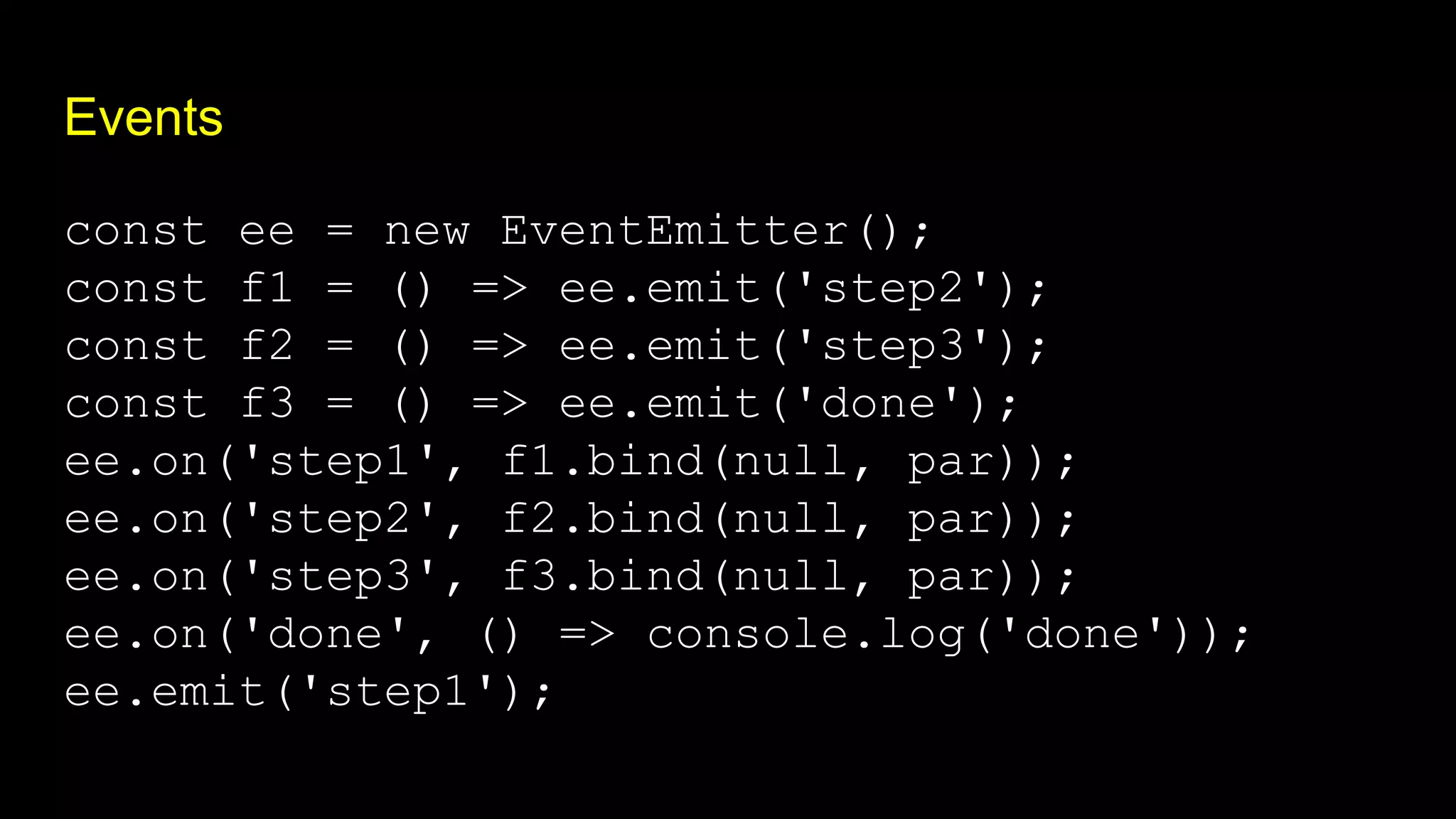
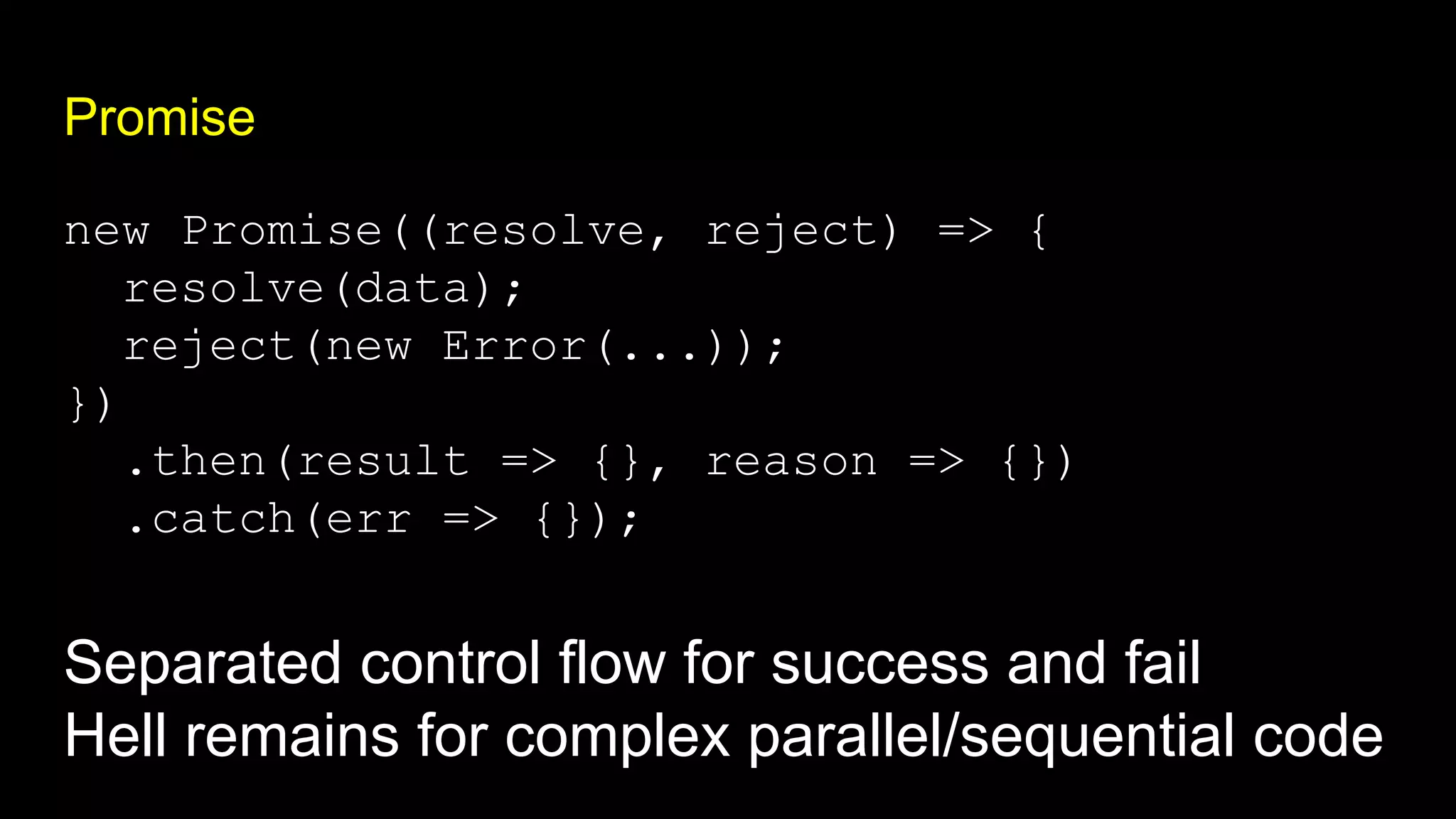
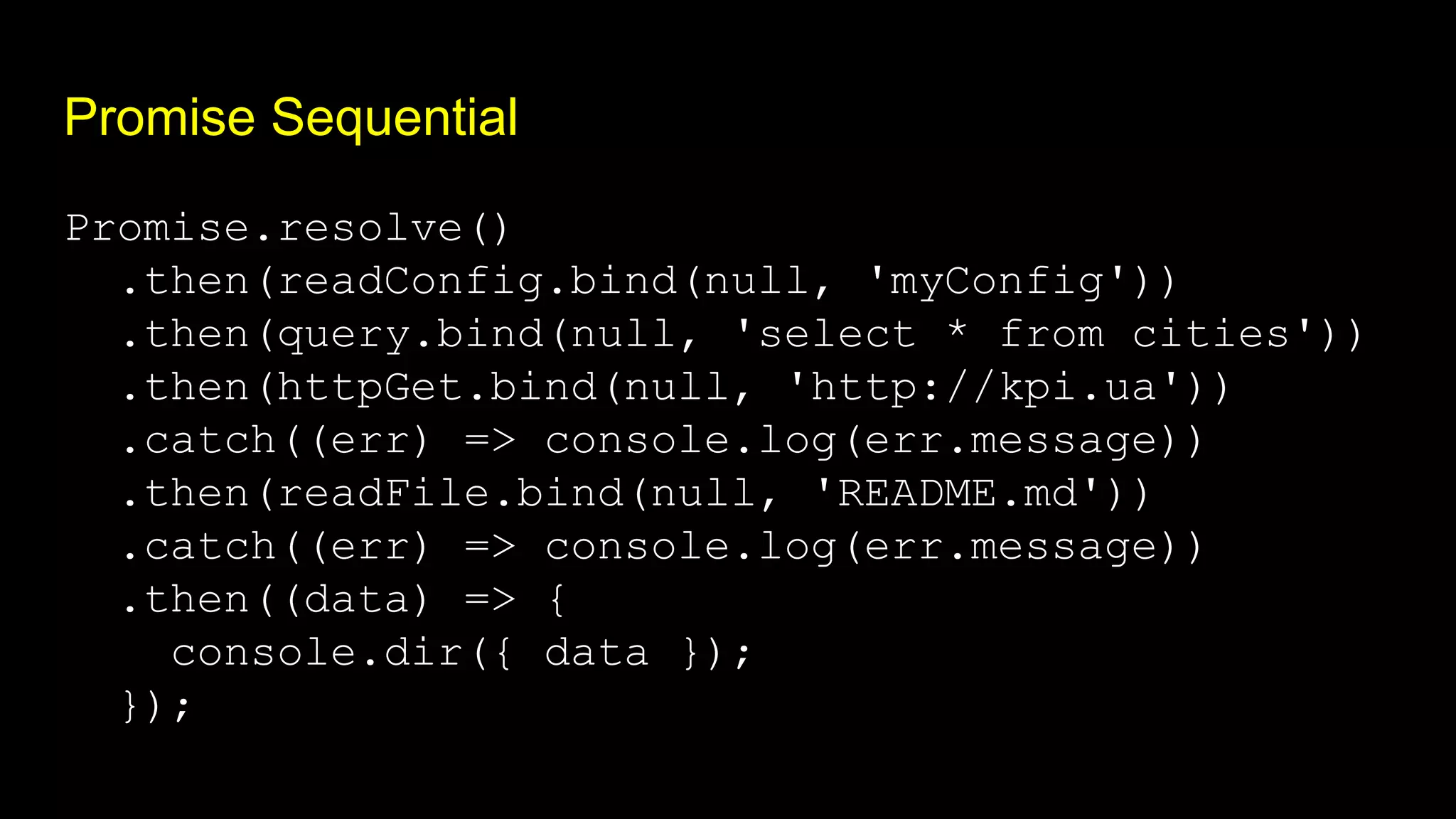
![Promise Parallel
Promise.all([
readConfig('myConfig'),
doQuery('select * from cities'),
httpGet('http://kpi.ua'),
readFile('README.md')
]).then((data) => {
console.log('Done');
console.dir({ data });
});](https://image.slidesharecdn.com/asynchronousprogrammingwithjavascriptandnode-171028133655/75/Asynchronous-programming-with-java-script-and-node-js-14-2048.jpg)
![Promise Mixed: parallel / sequential
Promise.resolve()
.then(readConfig.bind(null, 'myConfig'))
.then(() => Promise.all([
query('select * from cities'),
gttpGet('http://kpi.ua')
]))
.then(readFile.bind(null, 'README.md'))
.then((data) => {
console.log('Done');
console.dir({ data });
});](https://image.slidesharecdn.com/asynchronousprogrammingwithjavascriptandnode-171028133655/75/Asynchronous-programming-with-java-script-and-node-js-15-2048.jpg)
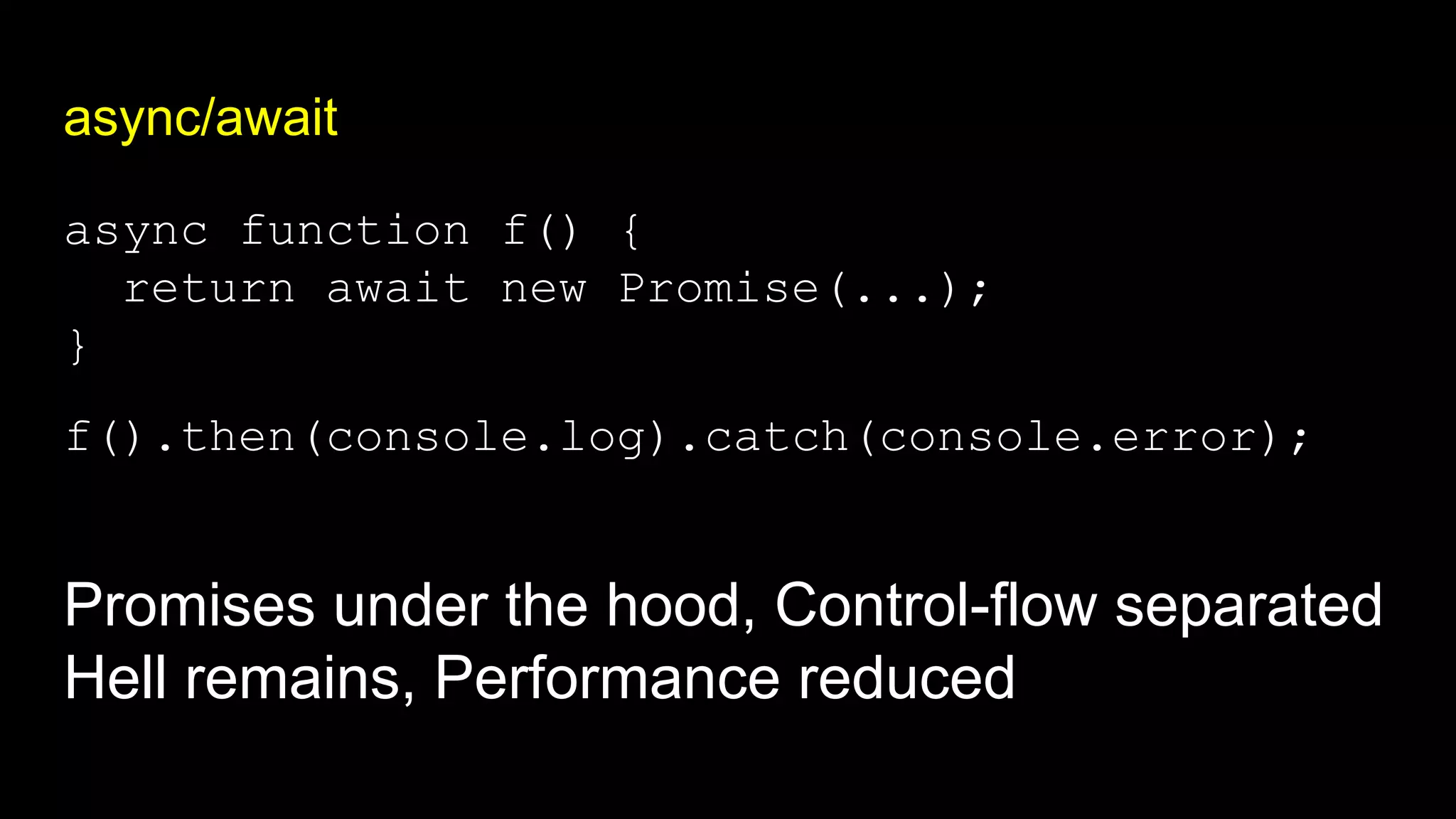
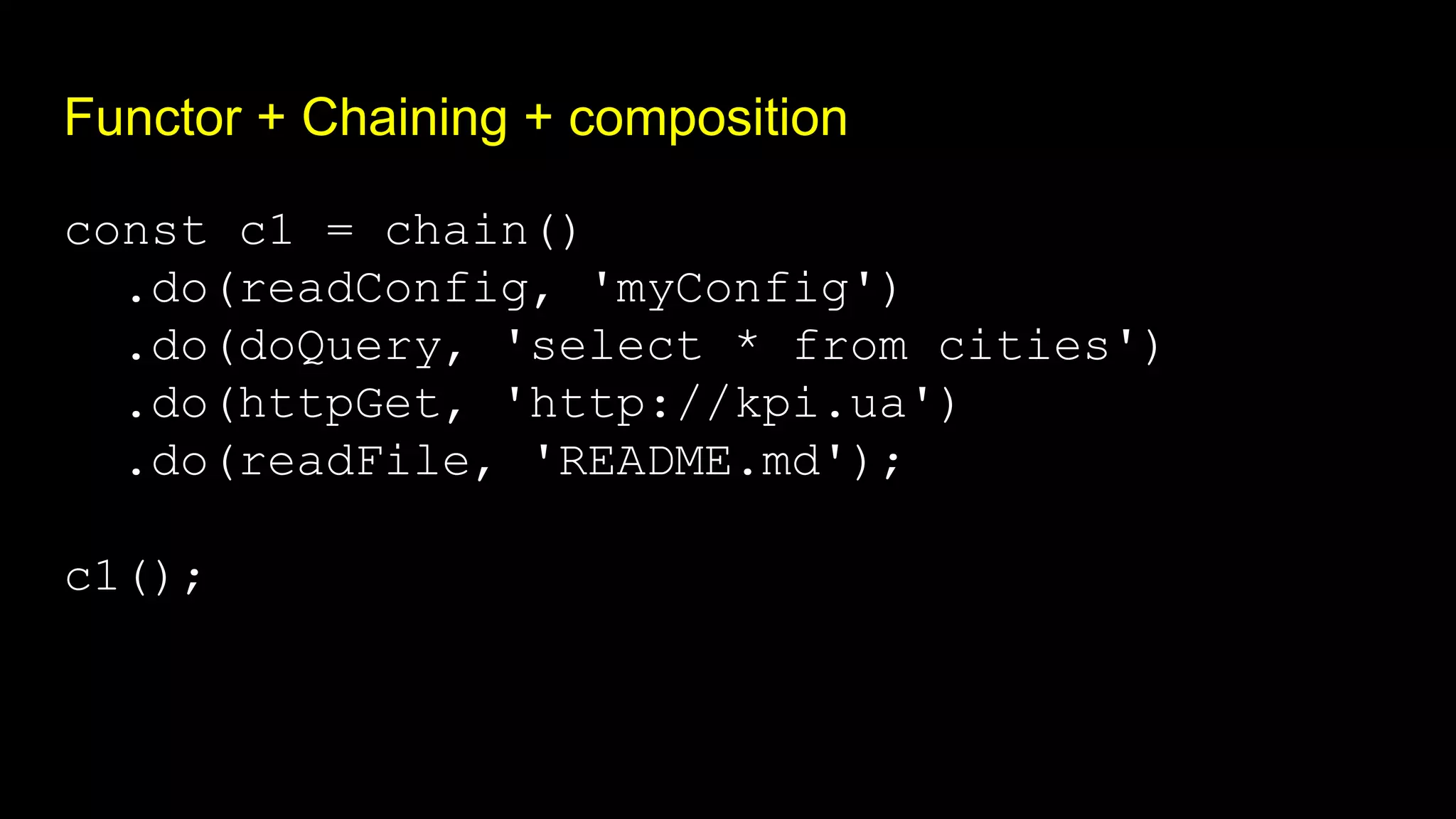
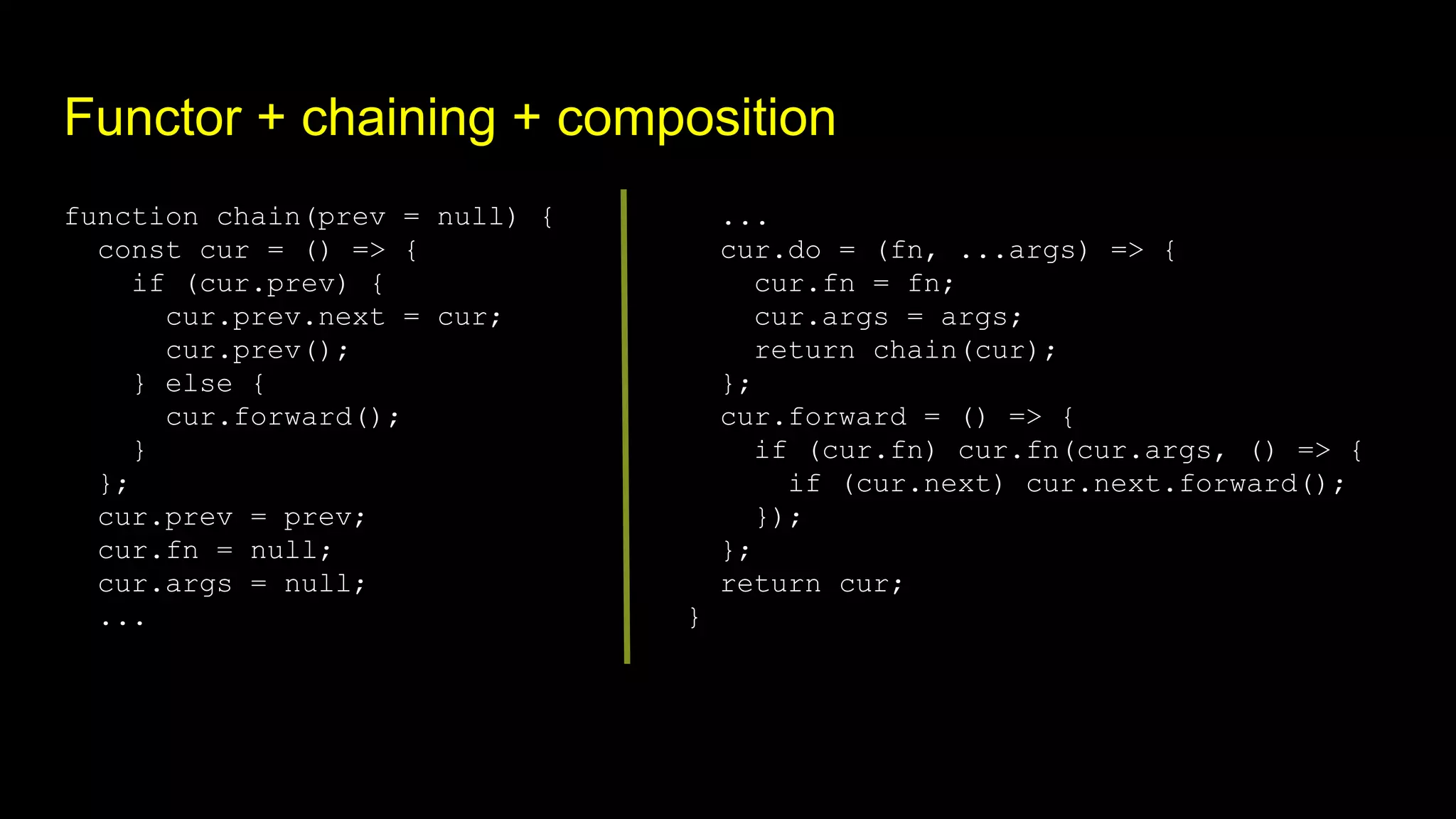
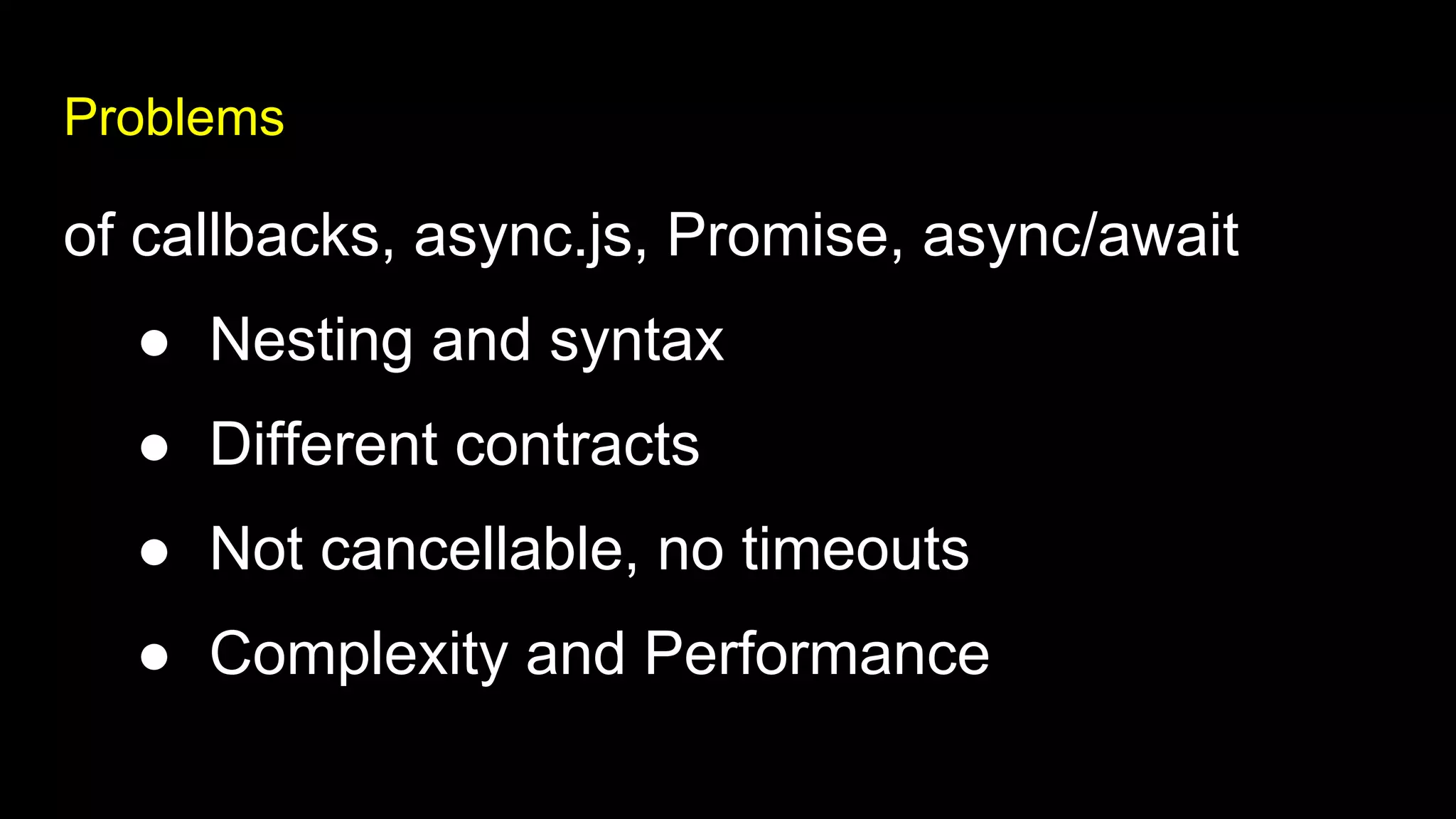

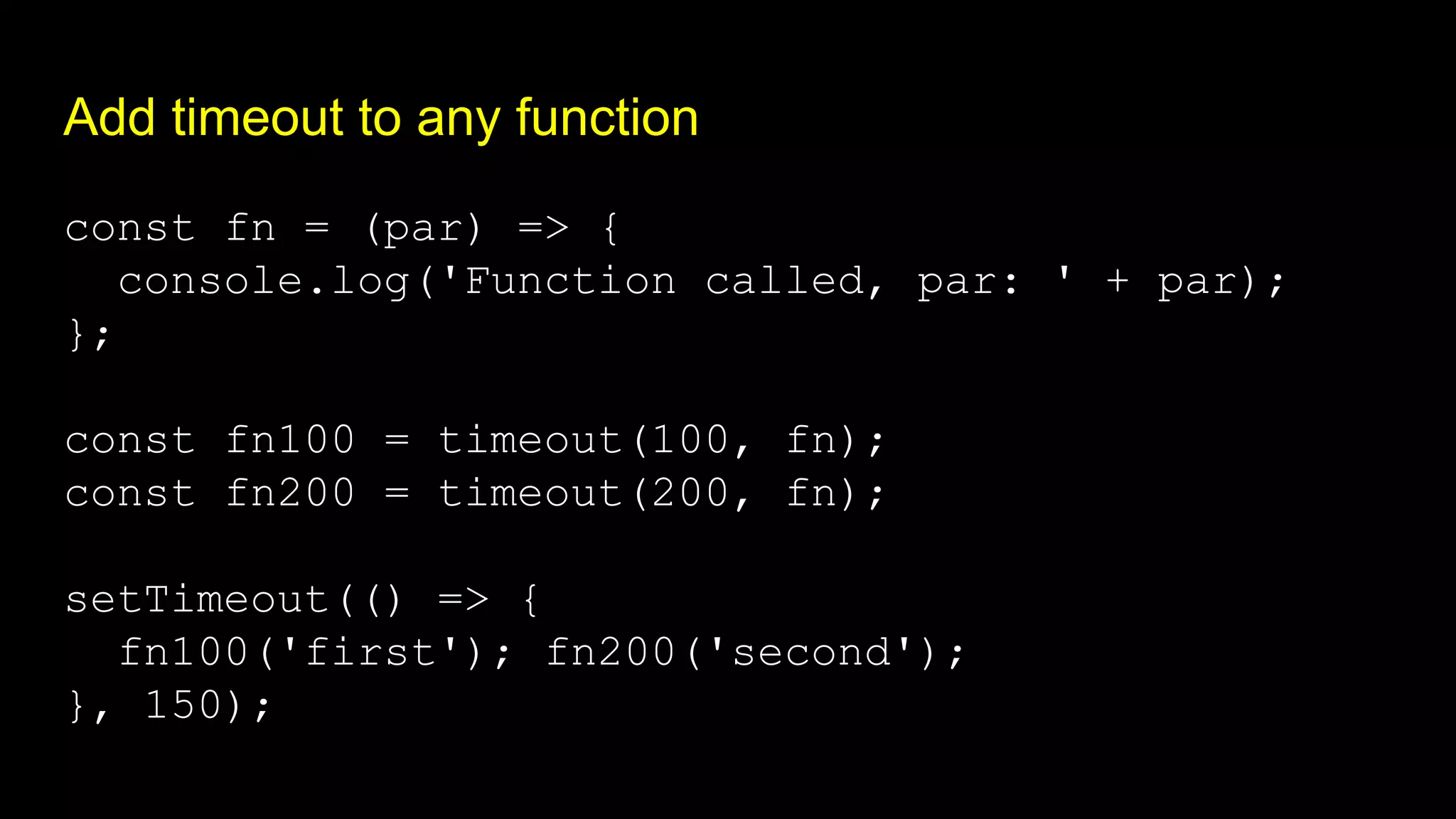
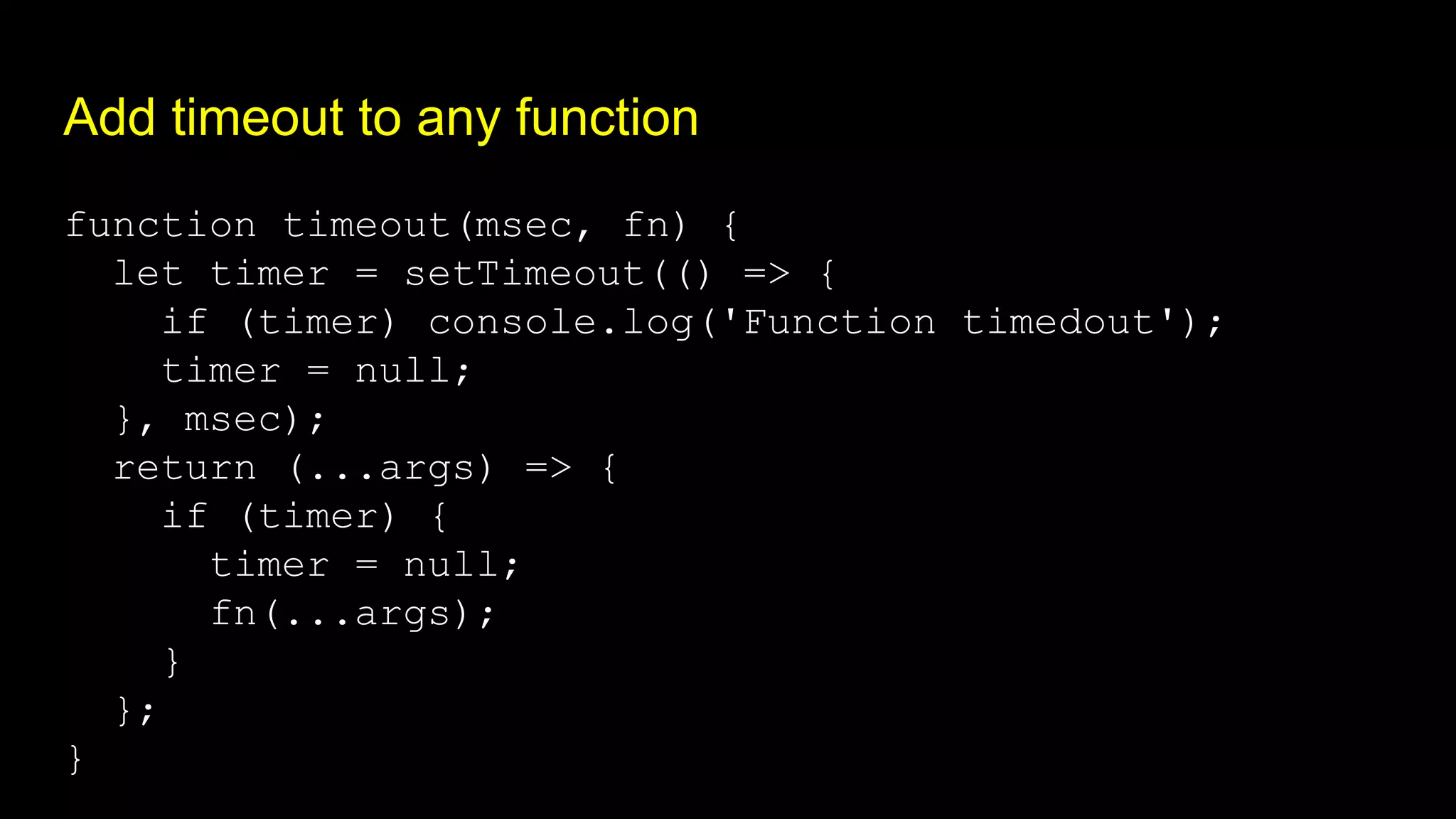
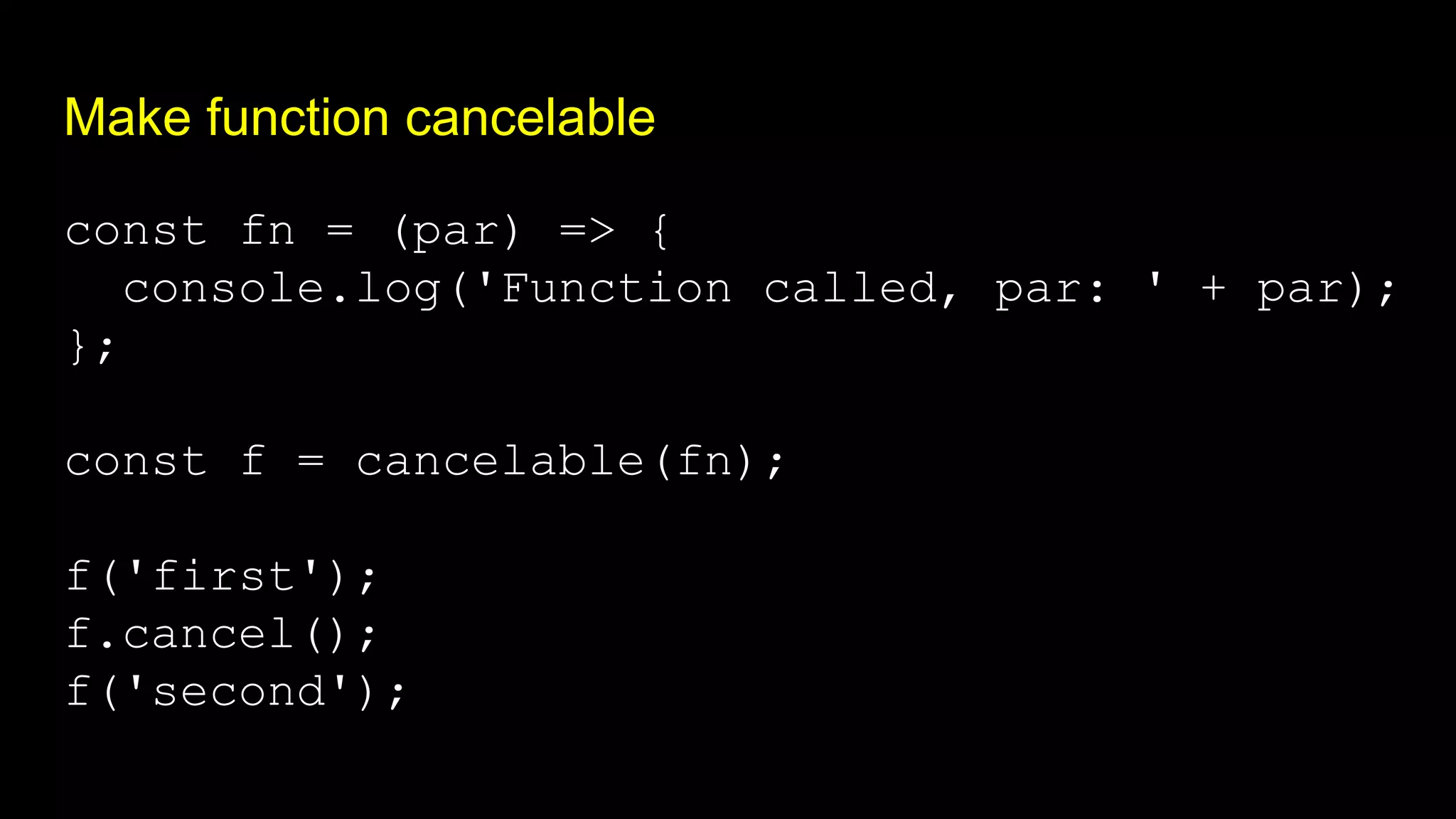
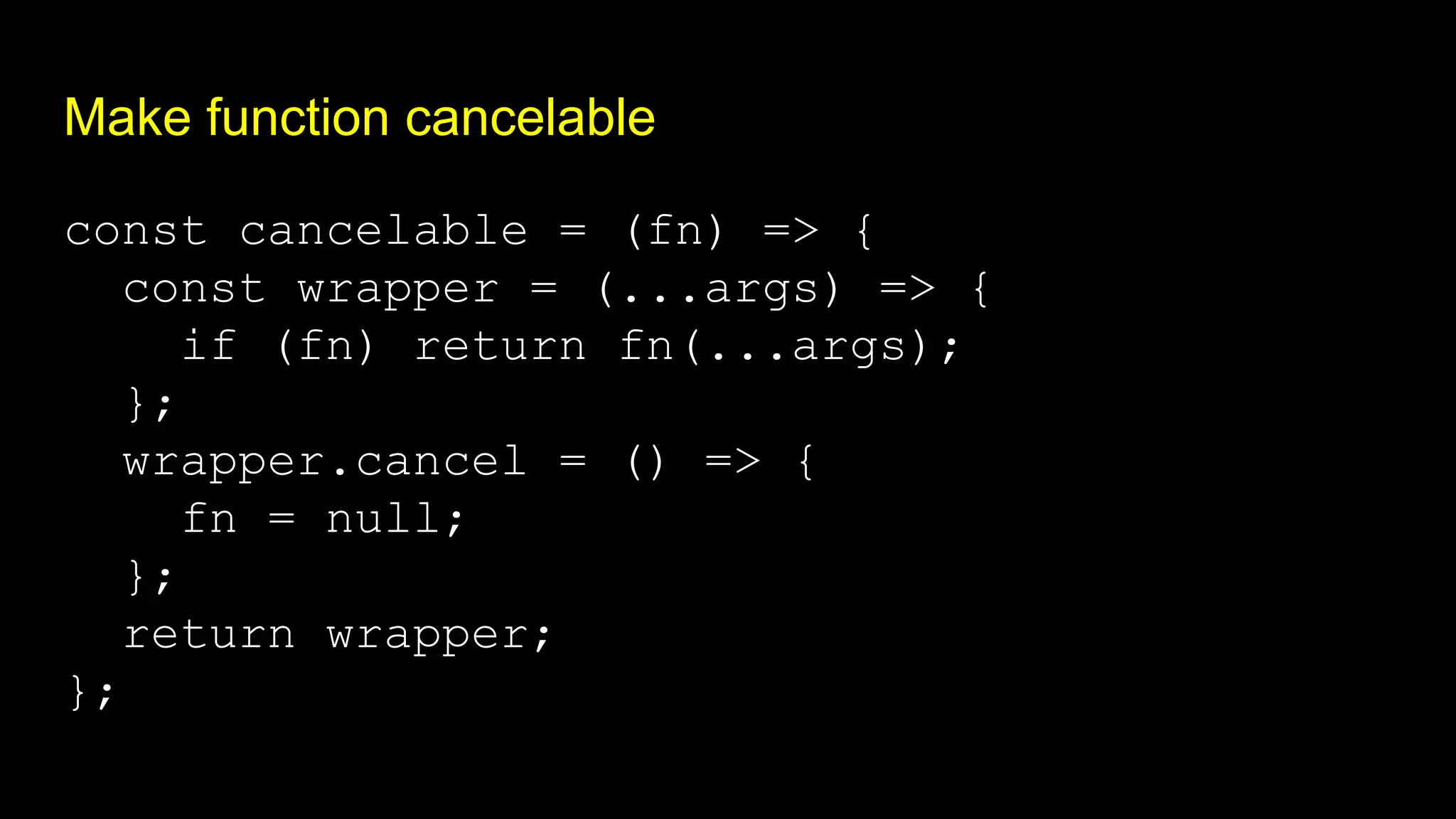
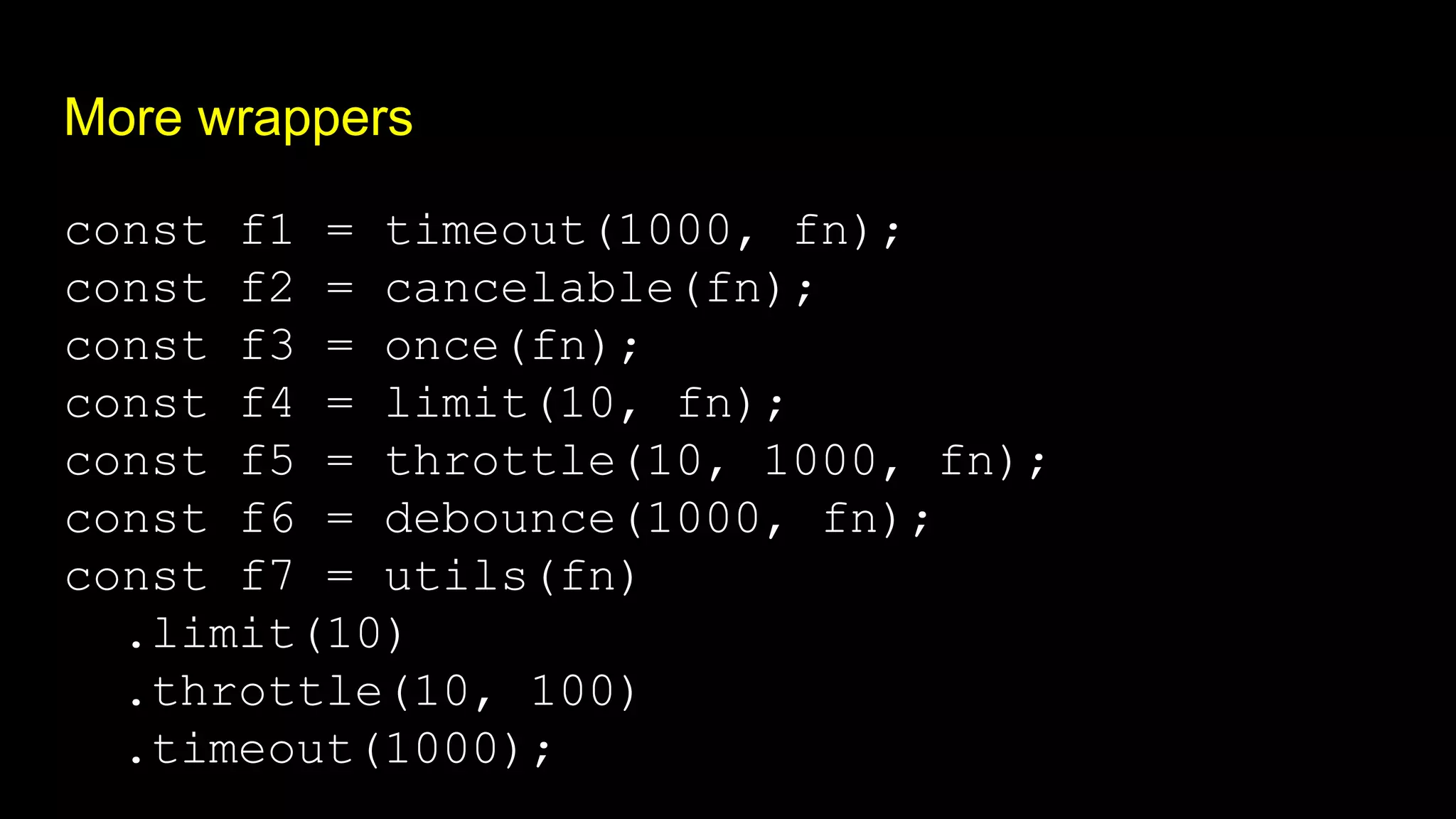
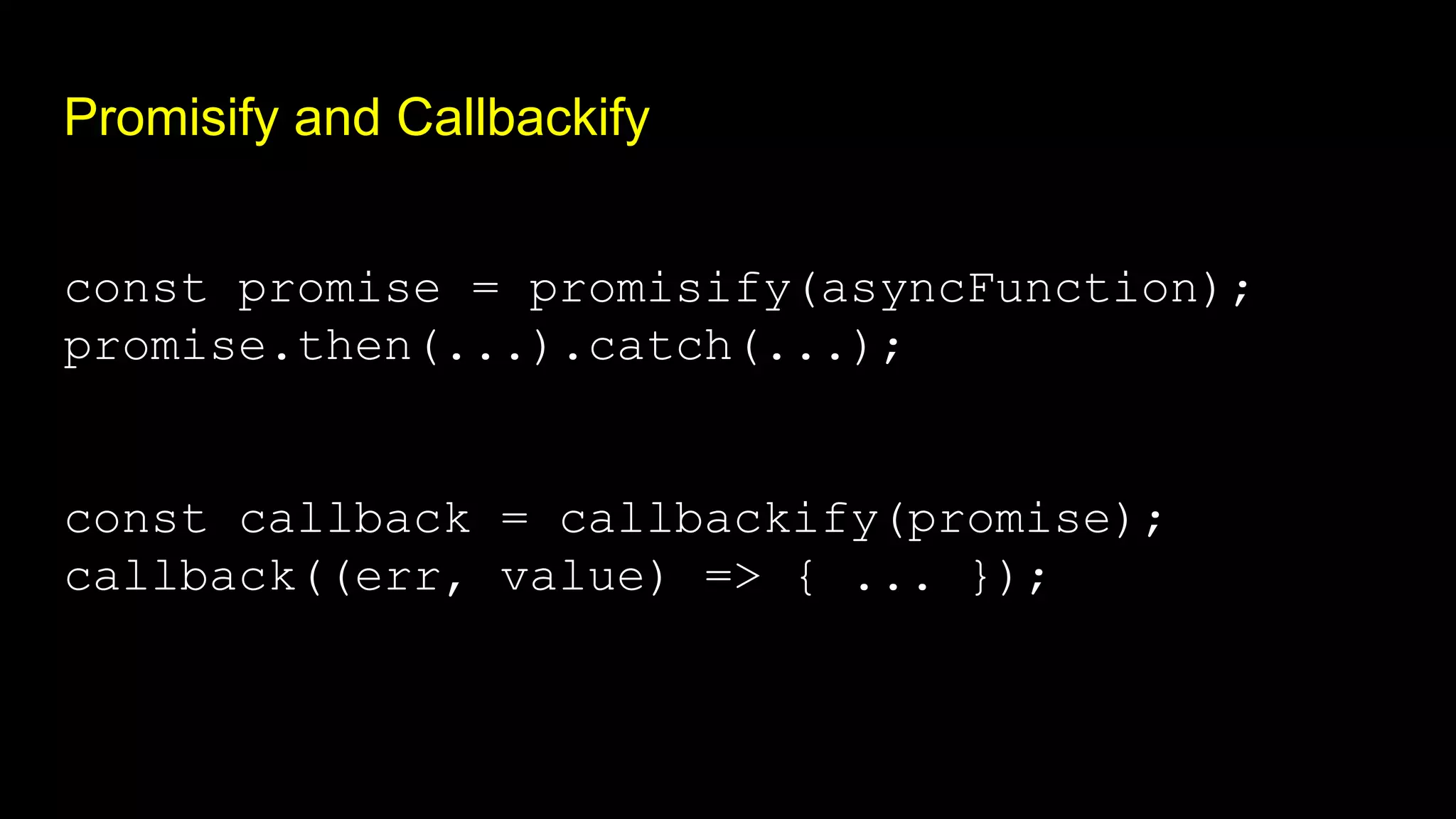
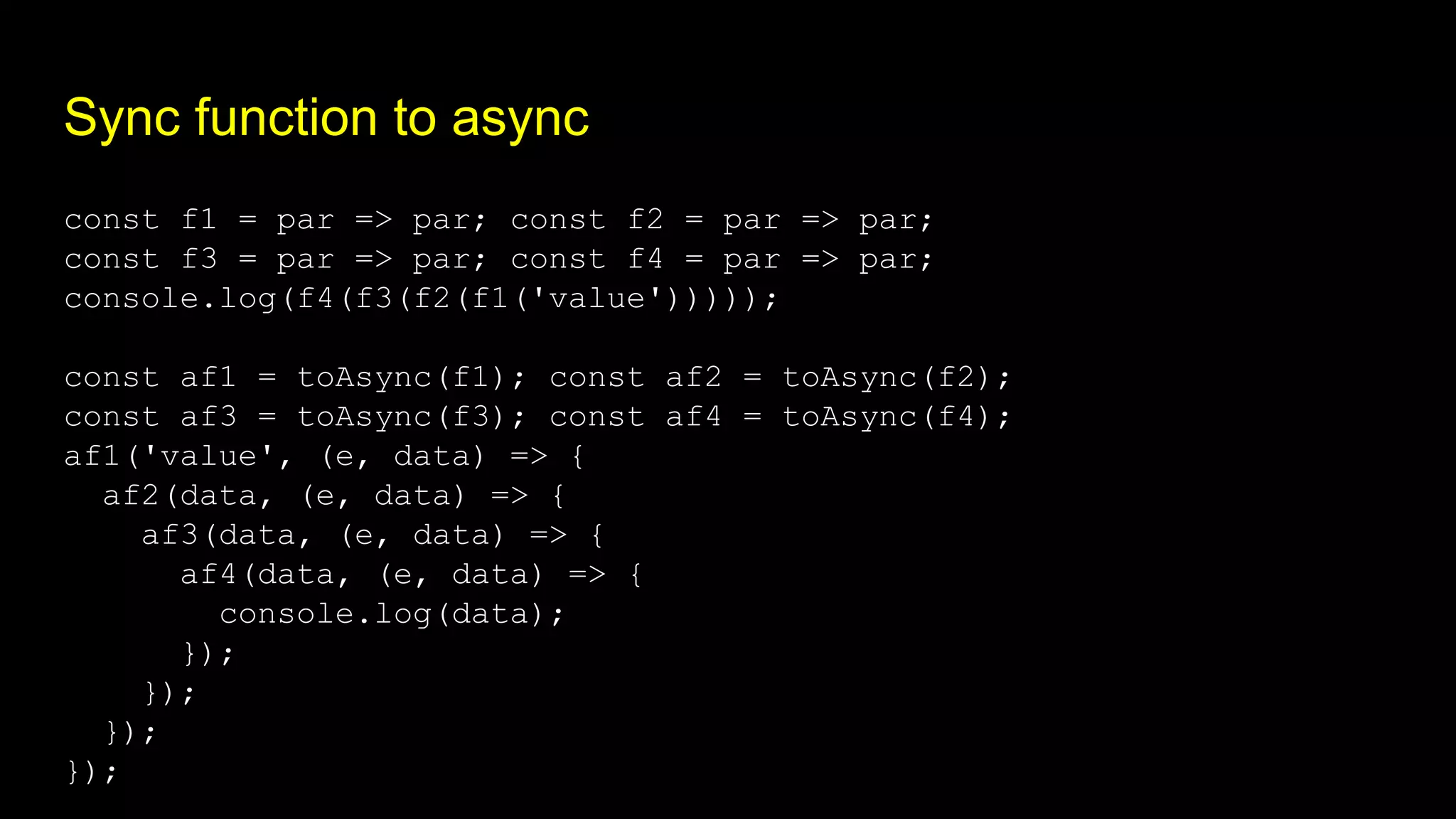
![Sync function to async
const last = arr => arr[arr.length - 1];
const toAsync = fn => (...args) => {
const callback = last(args);
args.pop();
callback(null, fn(...args));
};](https://image.slidesharecdn.com/asynchronousprogrammingwithjavascriptandnode-171028133655/75/Asynchronous-programming-with-java-script-and-node-js-28-2048.jpg)
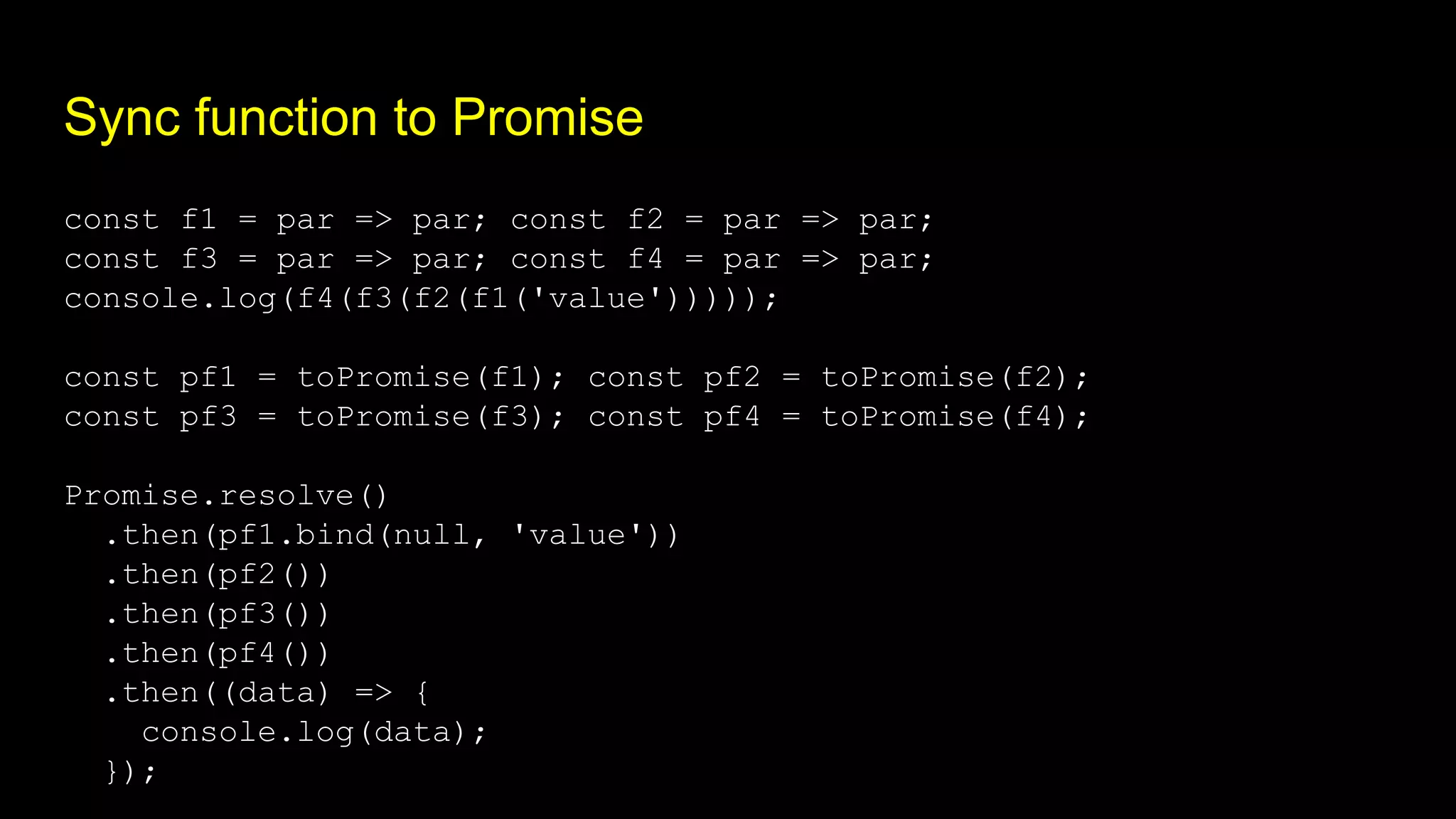
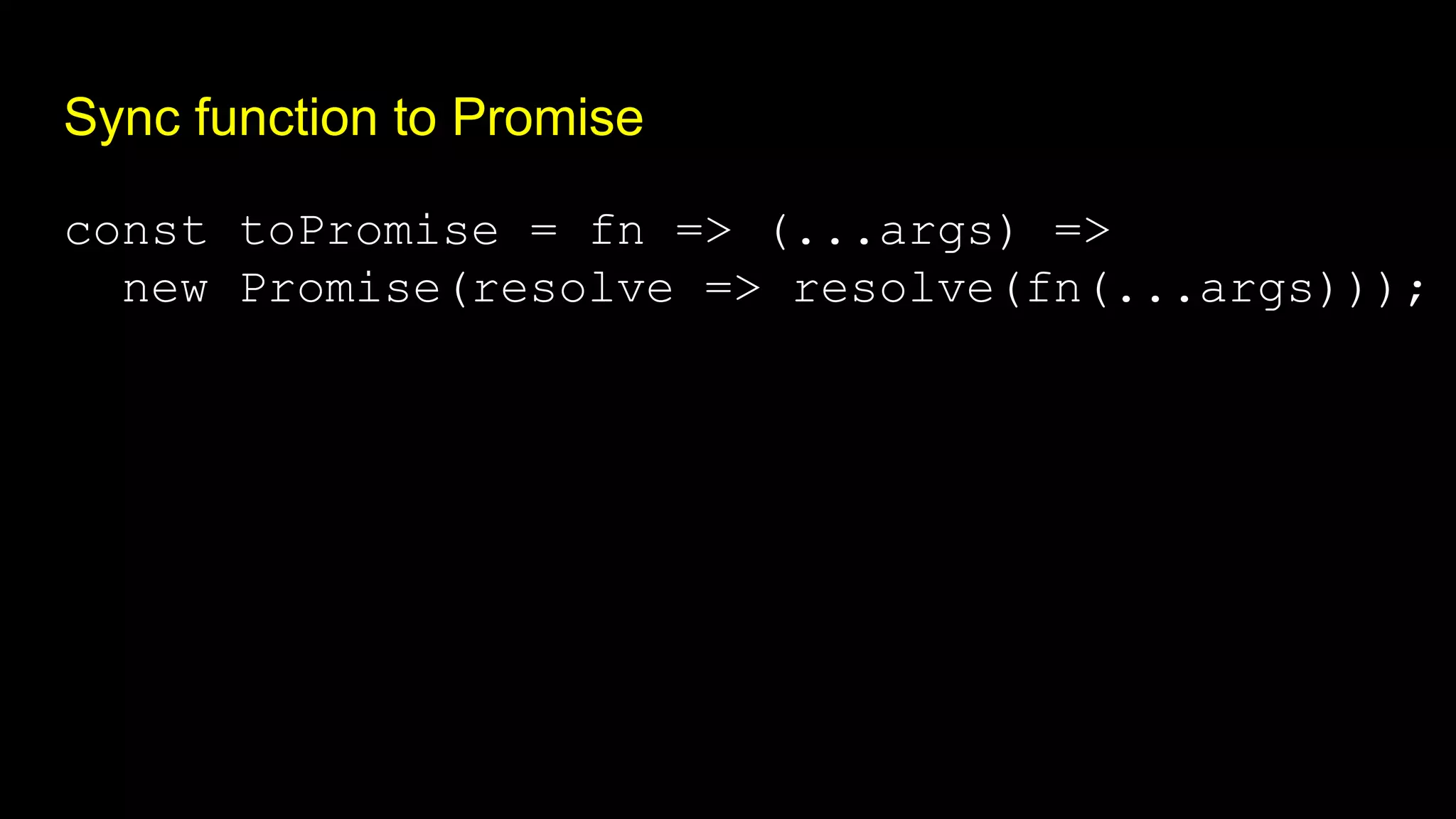
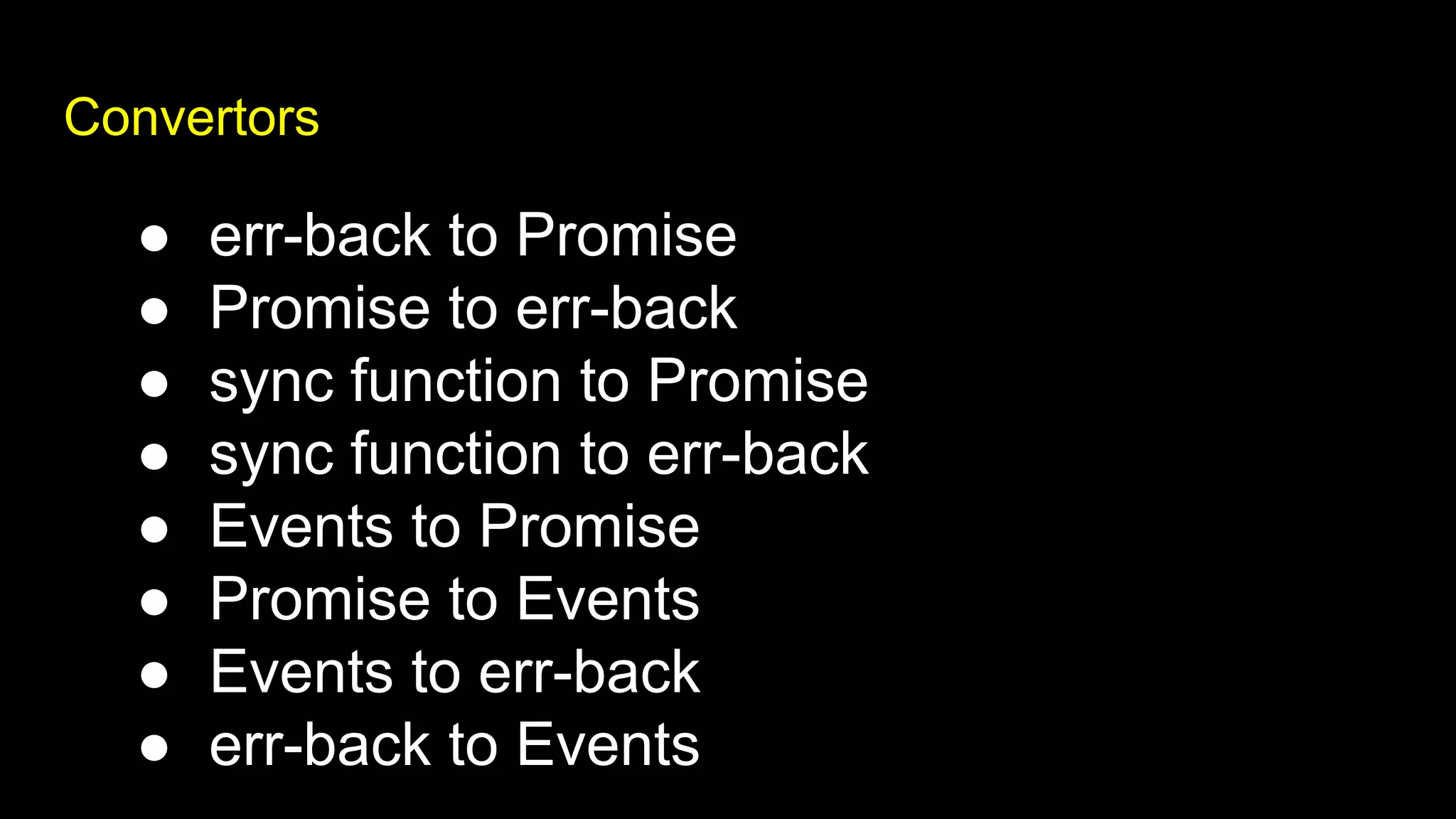

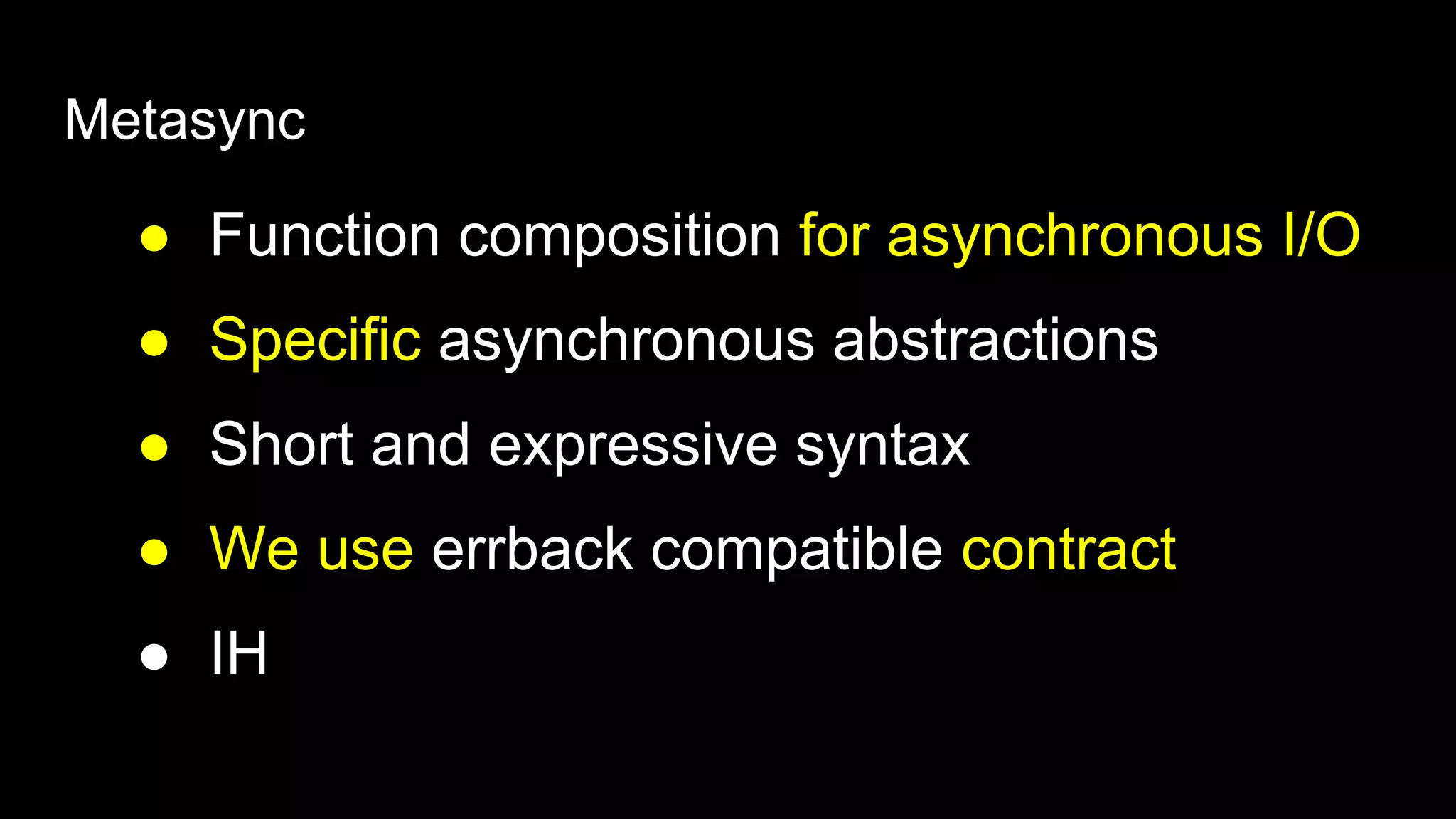
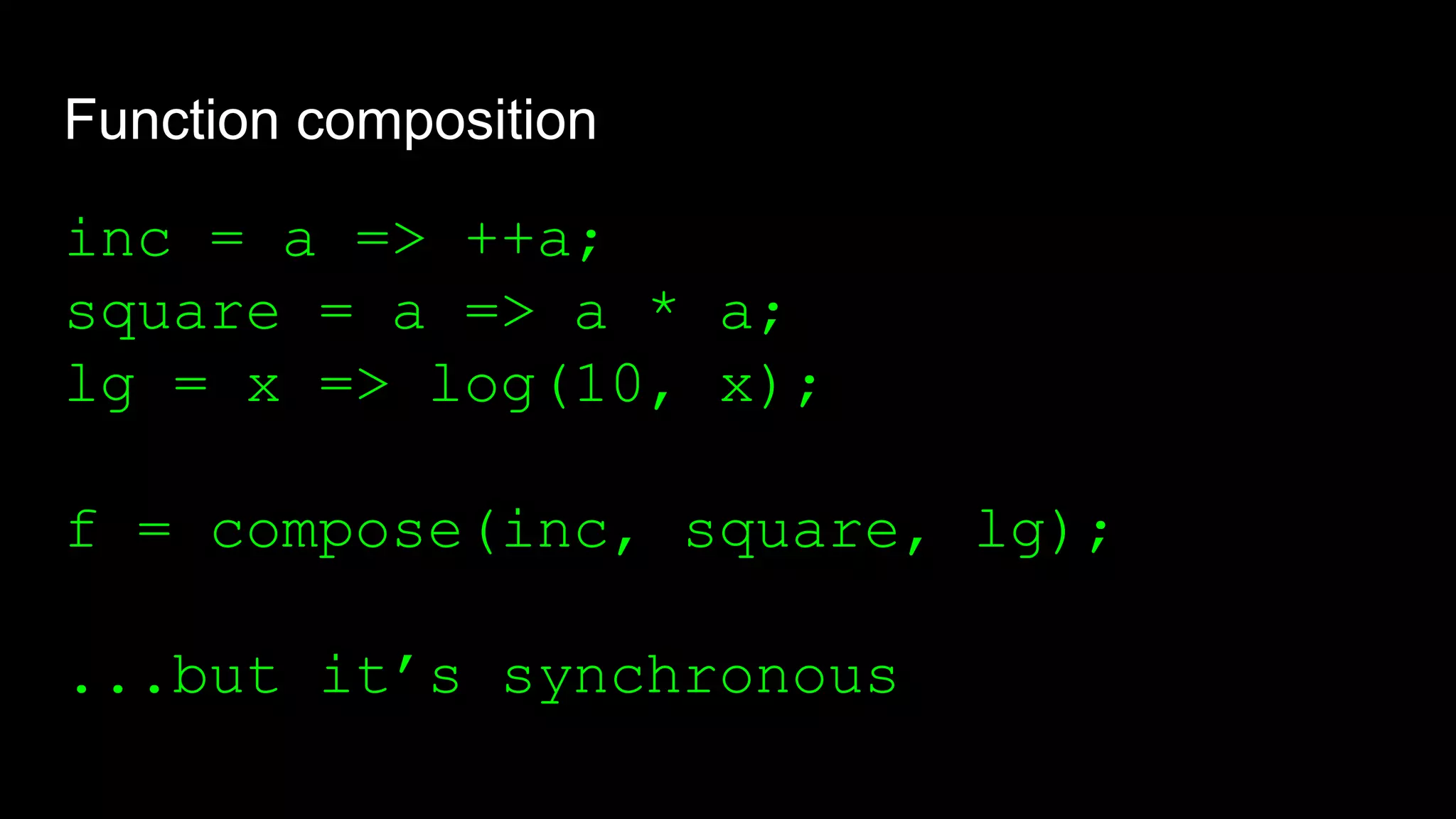
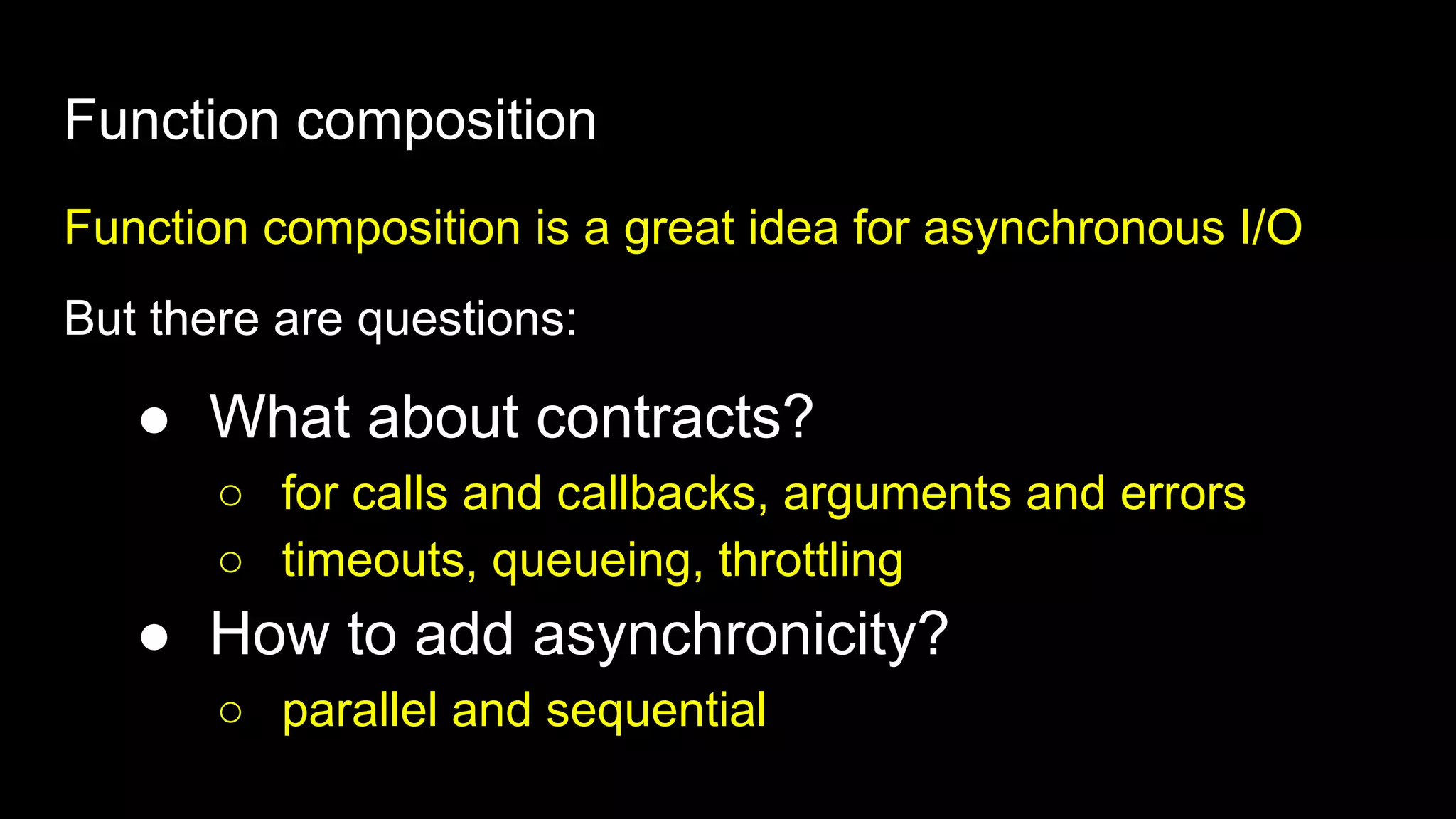
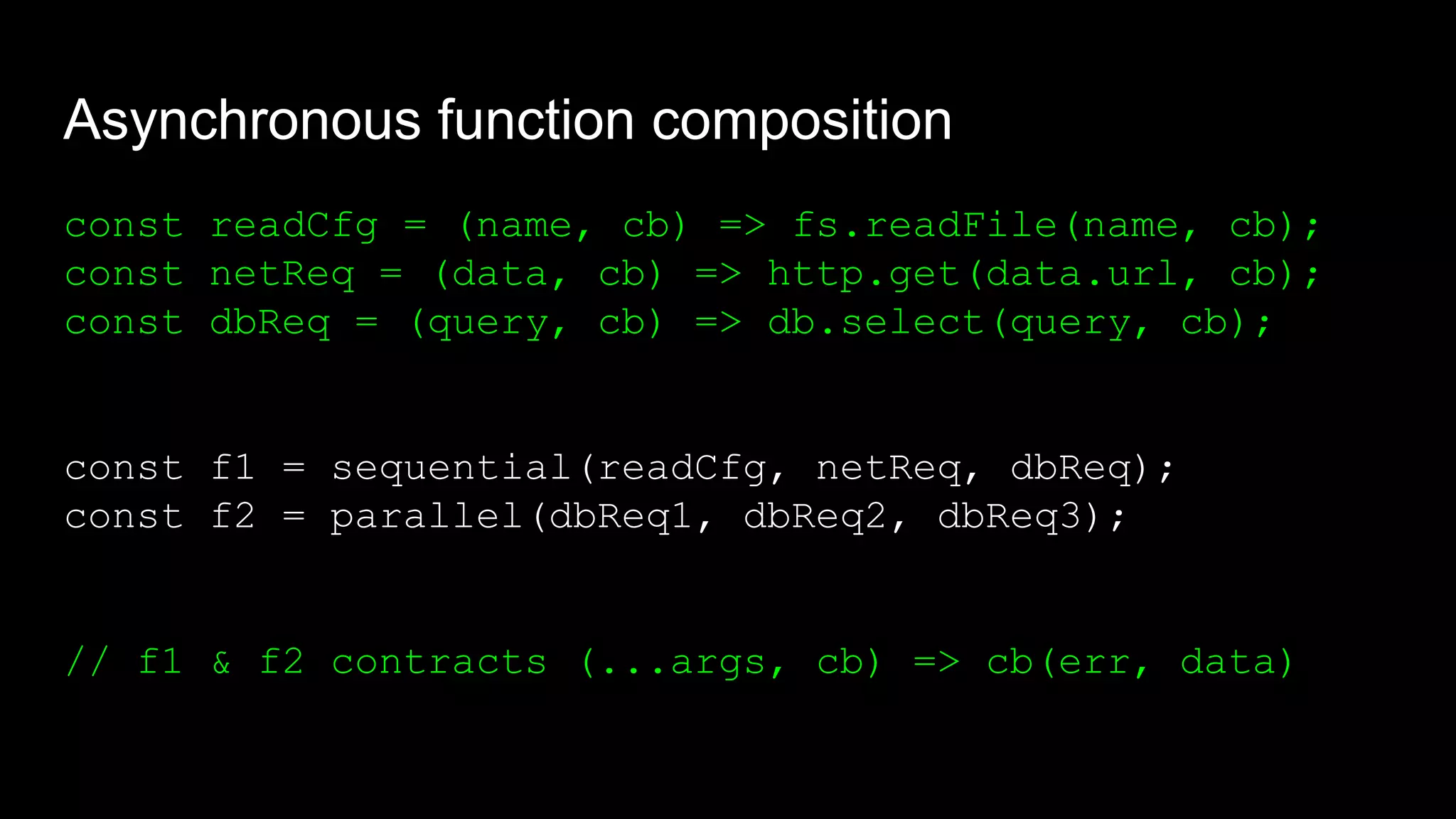
![Flow commutation like in electronics
const fx = metasync.flow(
[f1, f2, f3, [[f4, f5, [f6, f7], f8]], f9]
);](https://image.slidesharecdn.com/asynchronousprogrammingwithjavascriptandnode-171028133655/75/Asynchronous-programming-with-java-script-and-node-js-37-2048.jpg)
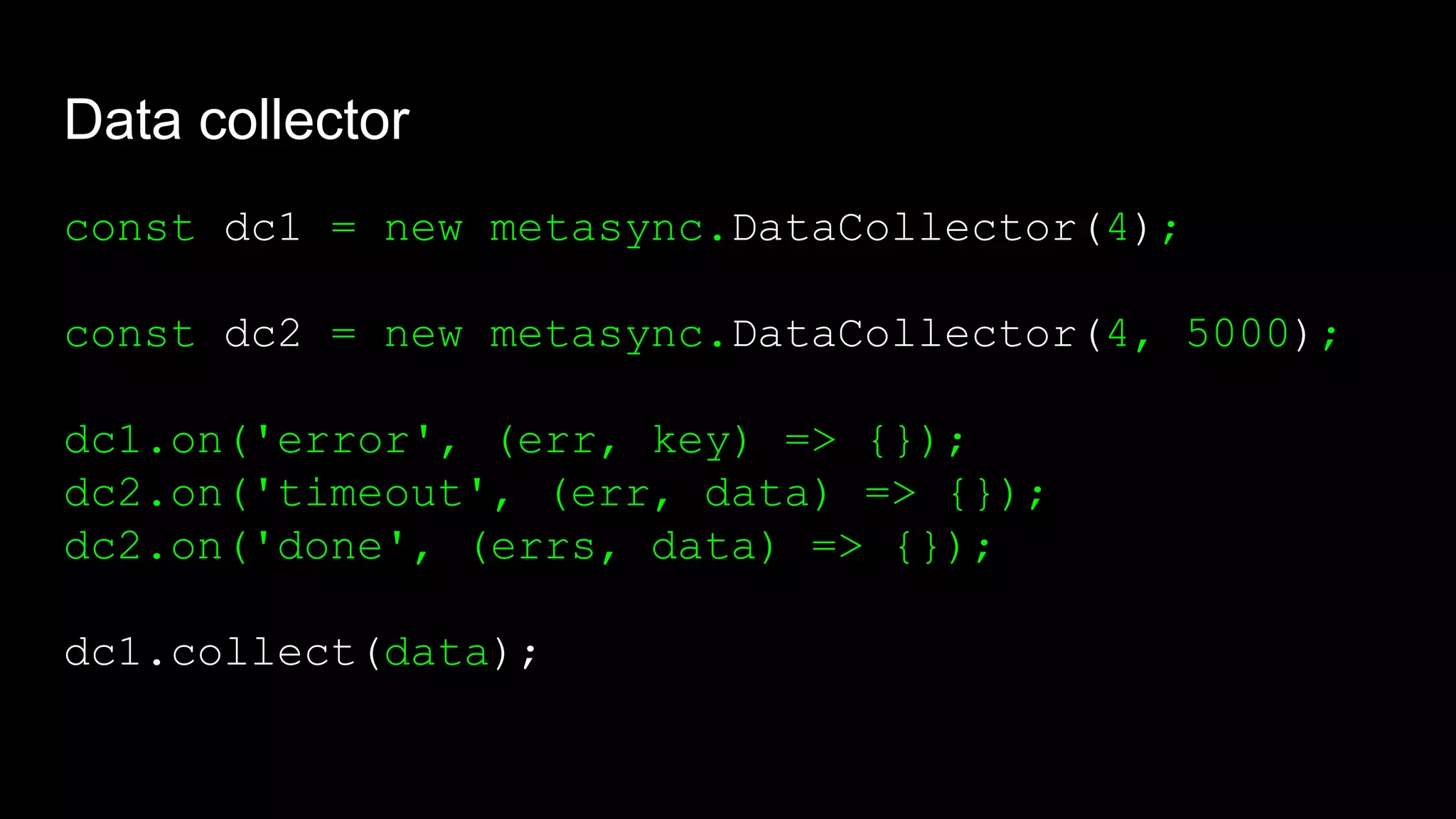
![Key collector
const keyCollector = new KeyCollector(
['k1', 'k2'], (data) => console.dir(data)
);
keyCollector.collect('k1', {});
fs.readFile('HISTORY.md', (err, data) => {
keyCollector.collect('history', data);
});](https://image.slidesharecdn.com/asynchronousprogrammingwithjavascriptandnode-171028133655/75/Asynchronous-programming-with-java-script-and-node-js-39-2048.jpg)
![Key collector
const kc = new metasync.KeyCollector(
['user', 'config', 'readme', 'timer'], (data) => console.dir(data)
);
kc.collect('user', { name: 'Marcus Aurelius' });
fs.readFile('HISTORY.md', (err,data) => kc.collect('history', data));
fs.readFile('README.md', (err,data) => kc.collect('readme', data));
setTimeout(
() => keyCollector.collect('timer', { date: new Date() }),
ASYNC_TIMEOUT
);](https://image.slidesharecdn.com/asynchronousprogrammingwithjavascriptandnode-171028133655/75/Asynchronous-programming-with-java-script-and-node-js-40-2048.jpg)
![Collector
const dc1 = metasync
.collect(3)
.timeout(5000)
.done((err, data) => {});
dc1(item);
const dc2 = metasync
.collect(['key1', 'key2', 'key3'])
.timeout(5000)
.done((err, data) => {});
dc2(key, value);](https://image.slidesharecdn.com/asynchronousprogrammingwithjavascriptandnode-171028133655/75/Asynchronous-programming-with-java-script-and-node-js-41-2048.jpg)
